Shows

The Complete InterpreterExploring collocations to improve your B languageHi! Welcome to the Complete Interpreter podcast by the Interpreting Coach.Why 'Complete Interpreter'? Because you're not just a translation machine, you're also a person and a business owner, and I hope to help you take a 360 view of yourself and share some great tried-and-tested strategies to improve your interpreting skills, mindset, use of language, and marketing.In this episode, I talk about collocations: identifying them, exploring them, and practising using them. Collocations can make you sound more natural in the target language, and if you get them wrong, can mark you out as a...
2024-03-0435 min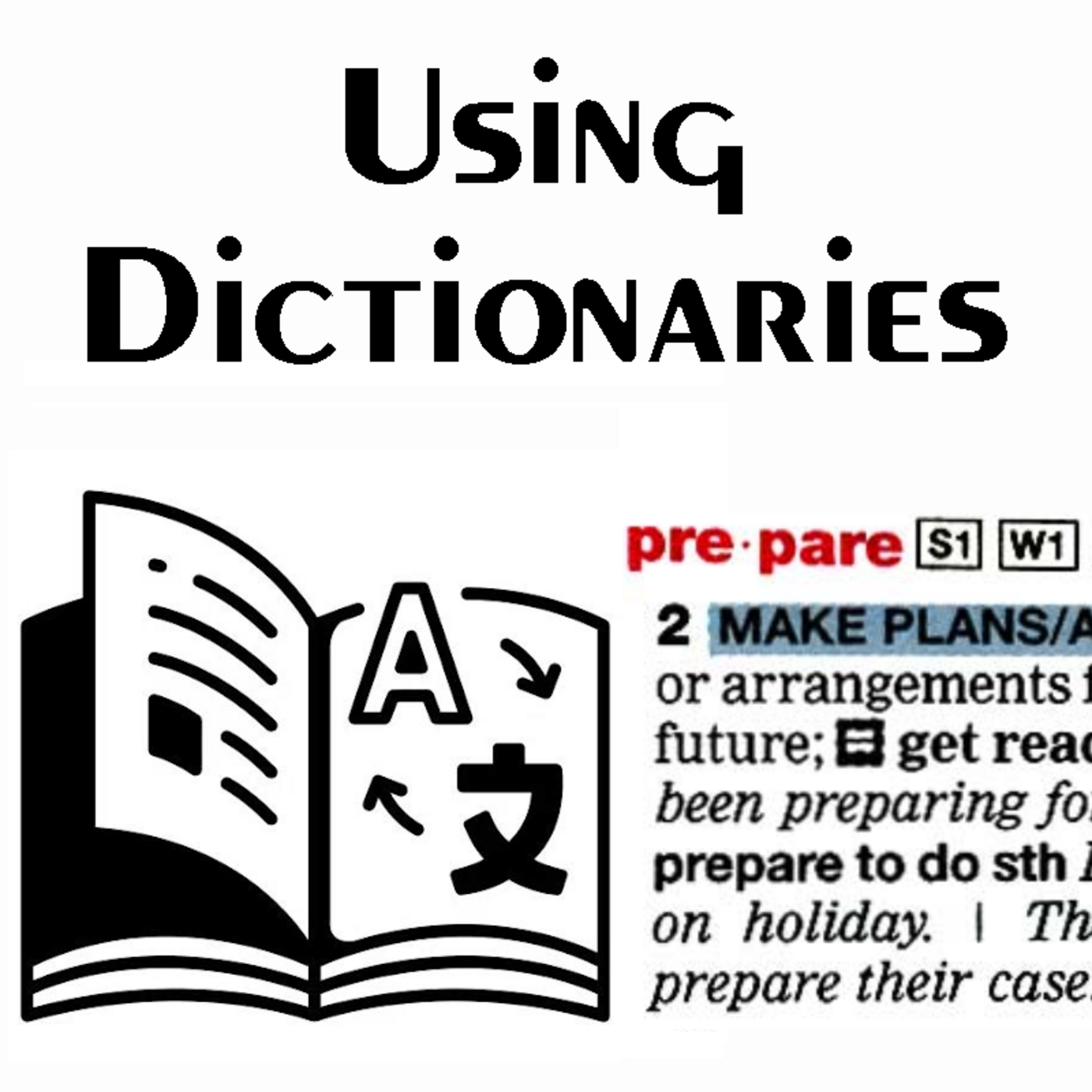
EAP FoundationUsing dictionariesA good dictionary is an essential tool for any language learner. This podcast considers different types of dictionary and the advantages and disadvantages of each, as well as looking at the features of a good dictionary. It concludes by looking at ways to improve dictionary use.
2022-12-3110 min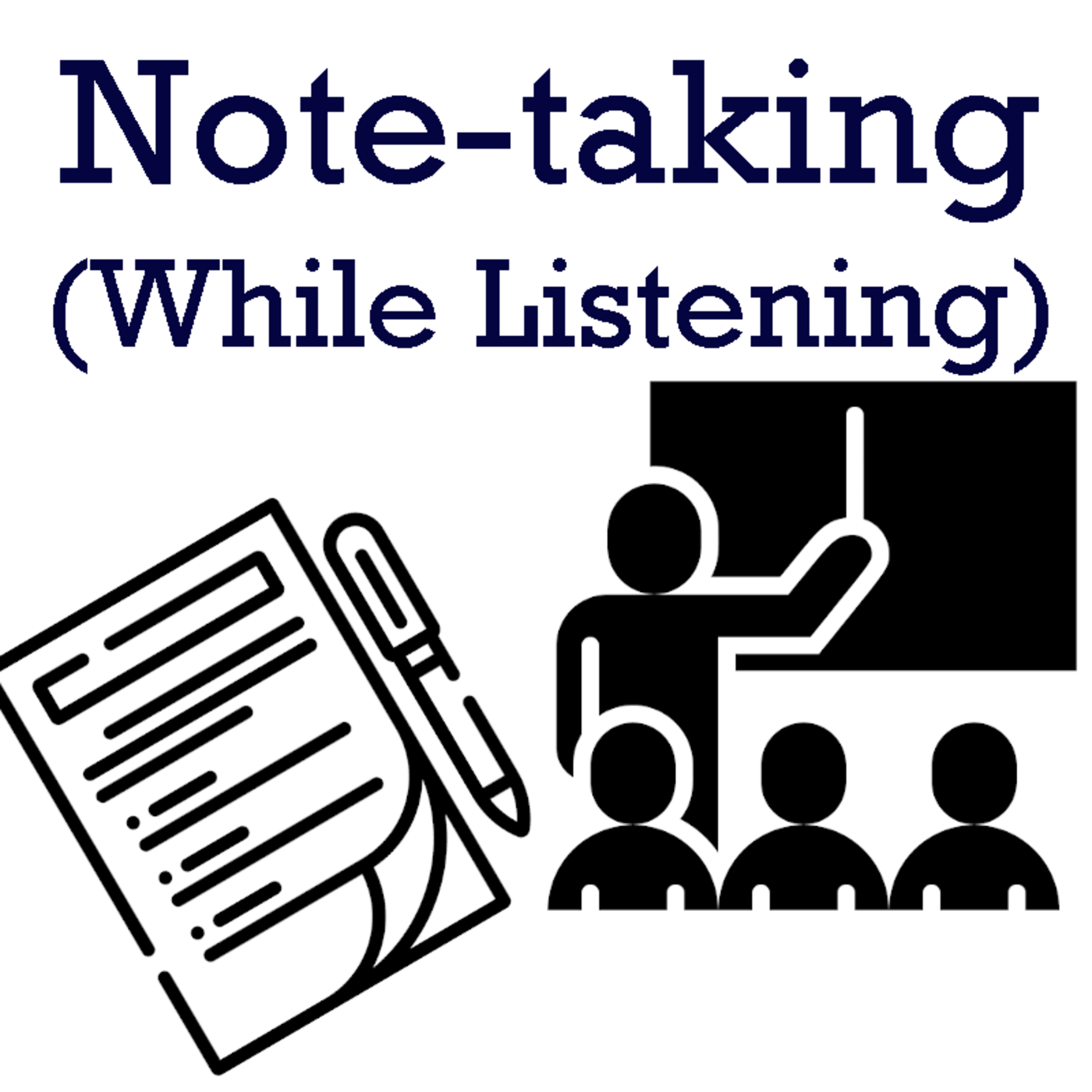
EAP FoundationNote-taking (while listening)Taking notes, both when reading texts and when listening to lectures or presentations, is an essential aspect of student life. This podcast considers reasons to take notes while listening, how note-taking for listening differs from note-taking for reading, and gives 10 tips for note-taking while listening.
2022-05-2102 min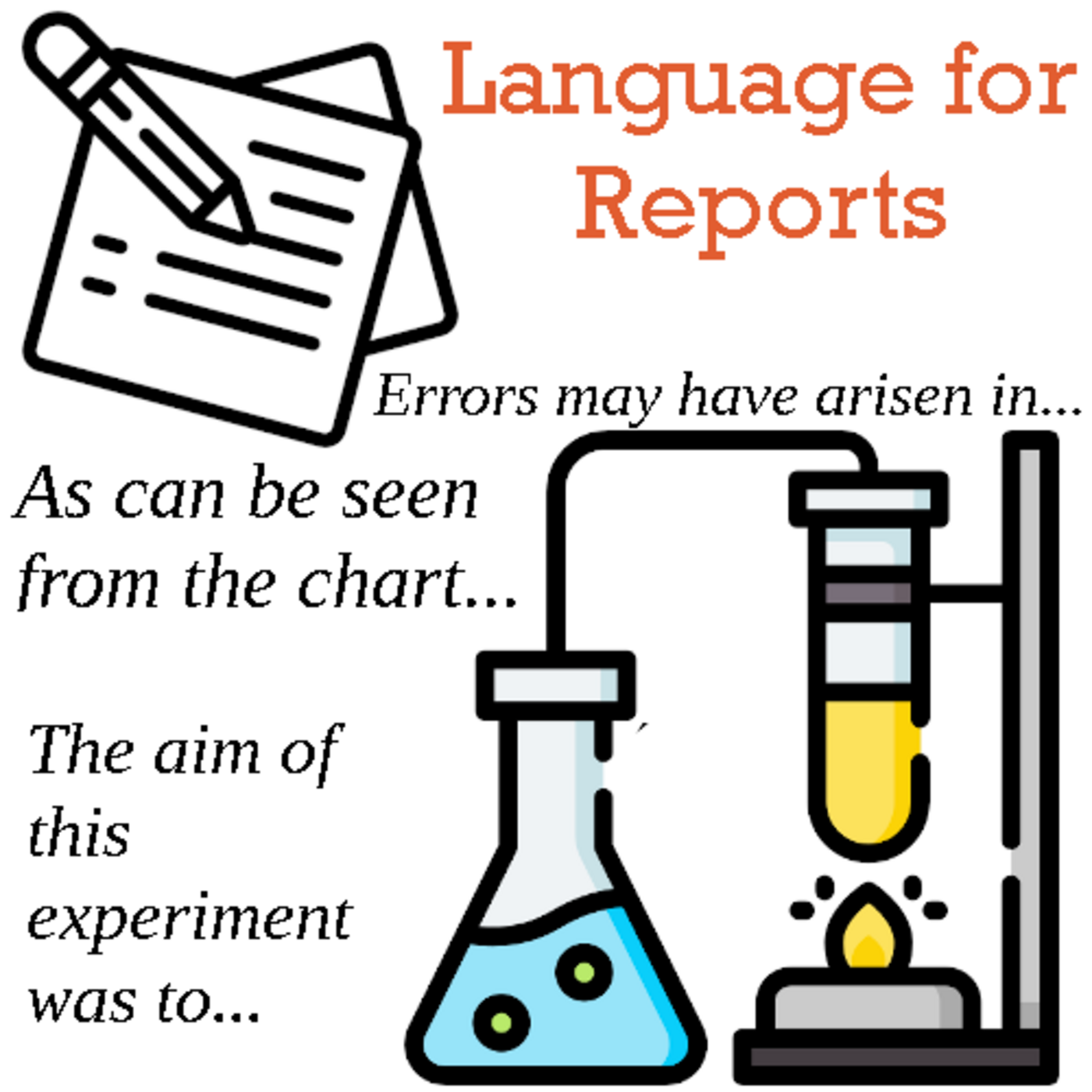
EAP FoundationLanguage for reportsThis podcast looks at language for reports. As with other formulaic language (e.g. the language for presentations), you do not need to learn all of these phrases. You should be able to use at least one phrase for each function (e.g. stating the aim(s) of your report, referring to figures in the Results section or the Discussion section). How many more you learn after this is up to you. Good writing requires varying the expressions you use, rather than using the same ones all the time. On the other hand, you will only state the aim...
2022-04-1008 min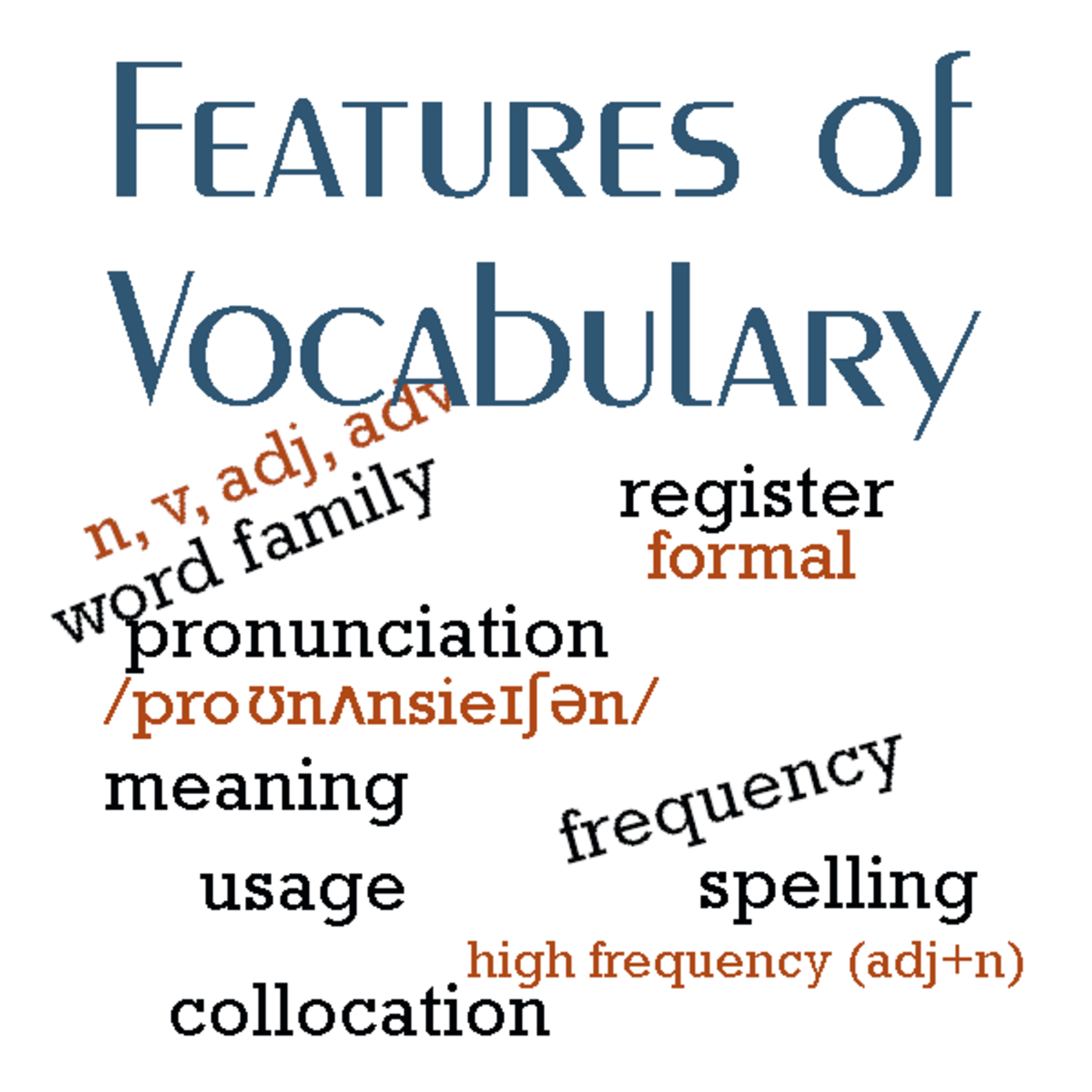
EAP FoundationFeatures of vocabularyThis podcast considers the important features of English vocabulary that you will need to know in order to use it effectively, namely meaning, spelling, pronunciation, part of speech, word family, frequency, register, usage and collocation.
2022-03-2111 min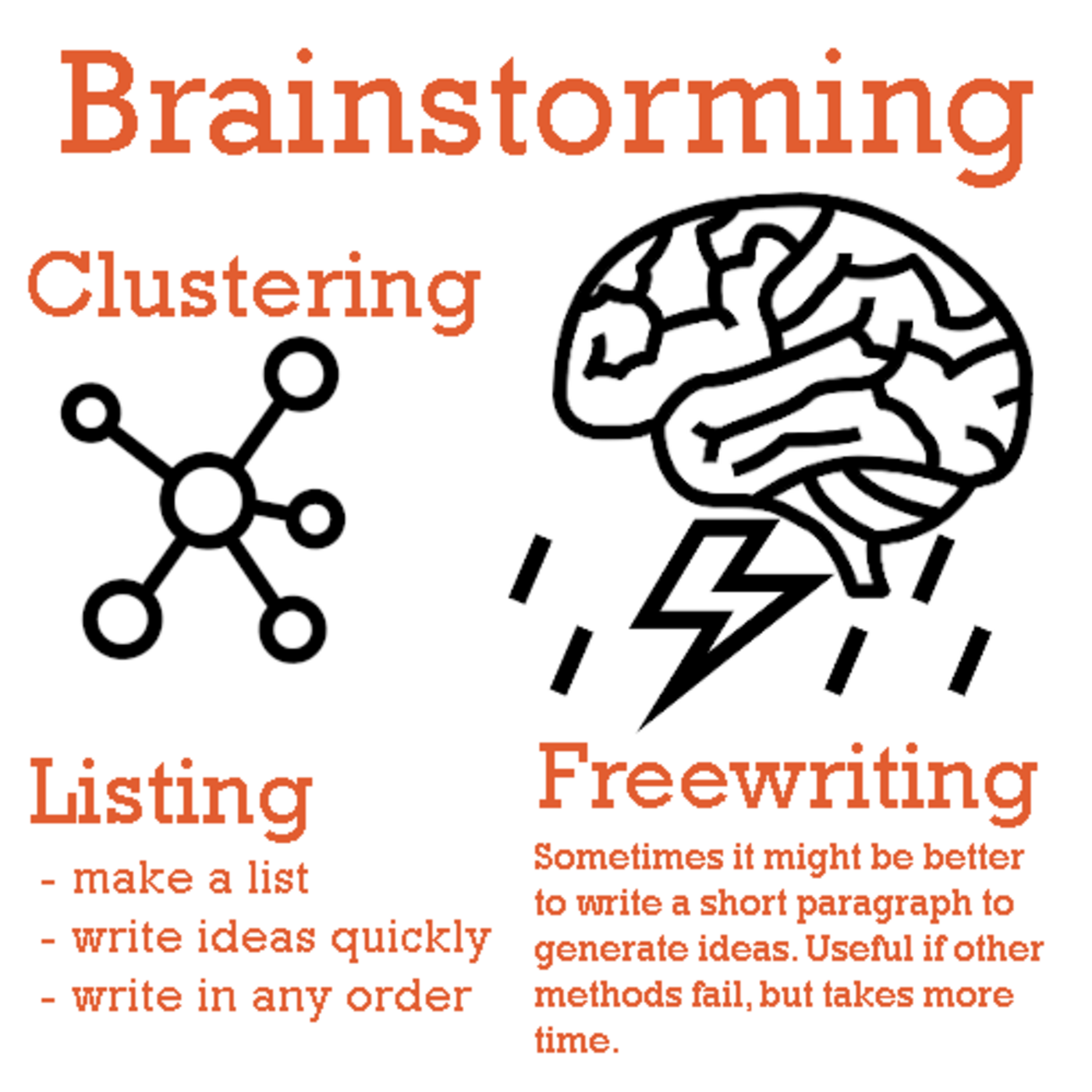
EAP FoundationBrainstormingAfter you have understood the title, the next step of the writing process is to generate ideas. The best way to do this is by a process called brainstorming. The podcast gives information on what brainstorming is, as well as describing three useful brainstorming techniques, namely clustering, listing, and freewriting.
2022-03-0303 min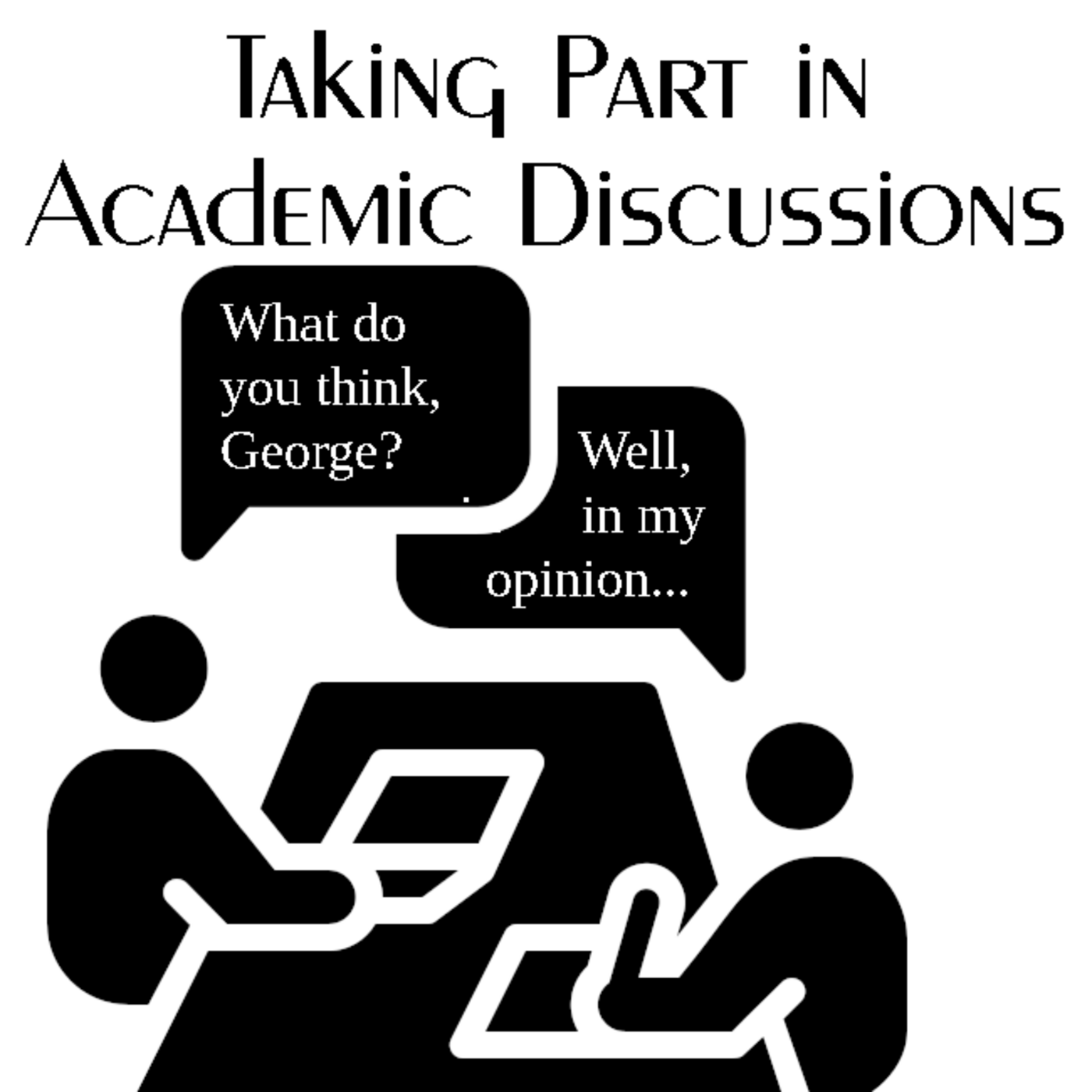
EAP FoundationTaking part in academic discussionsAcademic discussions are a key part of university life. This podcast will help you understand how to participate in academic discussions by considering the reasons for taking part in discussions and giving ways that individuals and groups can help to create an effective discussion. It also includes some tips on how to improve your discussion skills.
2022-02-1705 min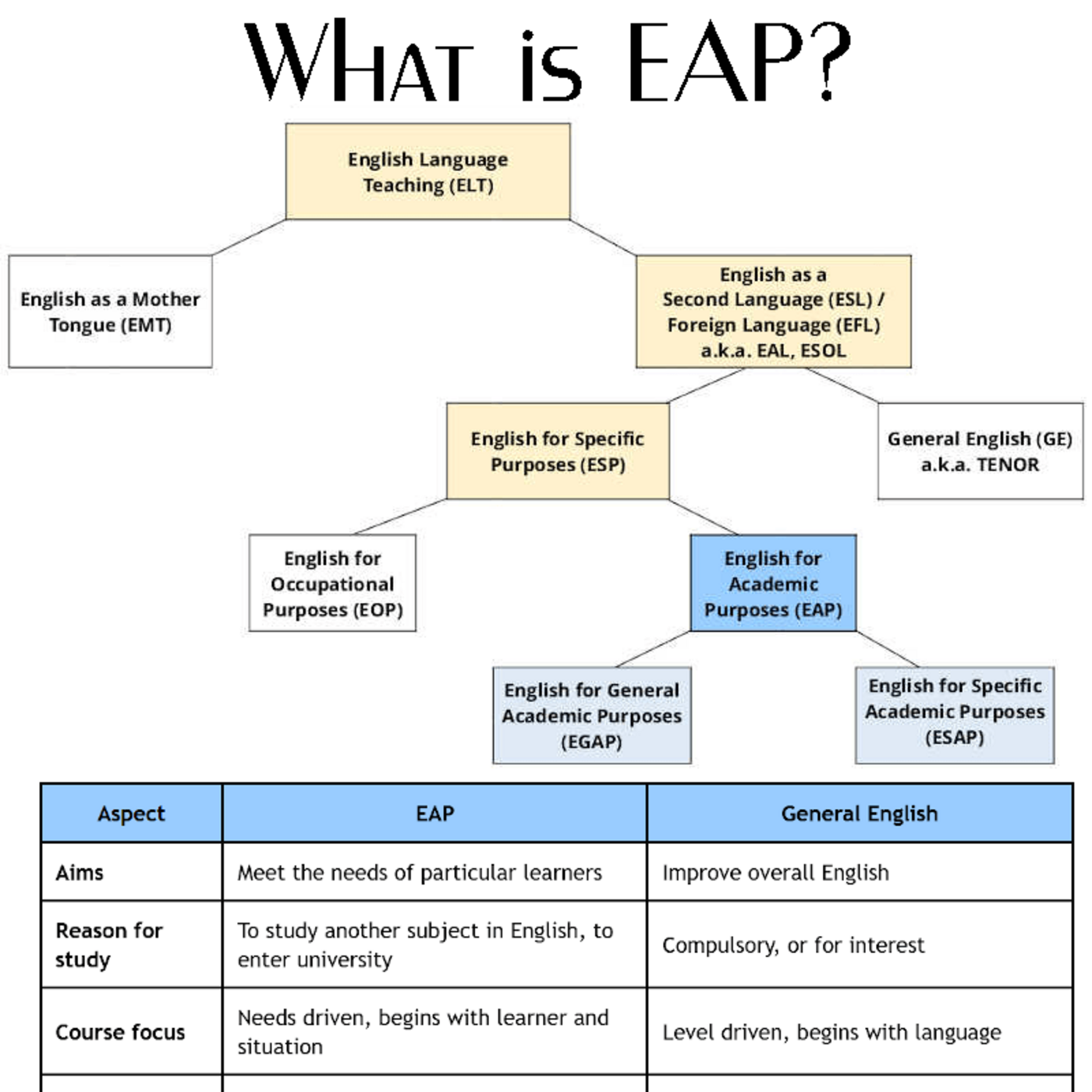
EAP FoundationWhat is EAP (English for Academic Purposes)?This podcast explains what EAP (English for Academic Purposes) is, giving a definition of EAP, describing its development, locating EAP in a family tree of English Language Teaching, considering general versus specific EAP, and comparing EAP to General English.
2022-02-1408 min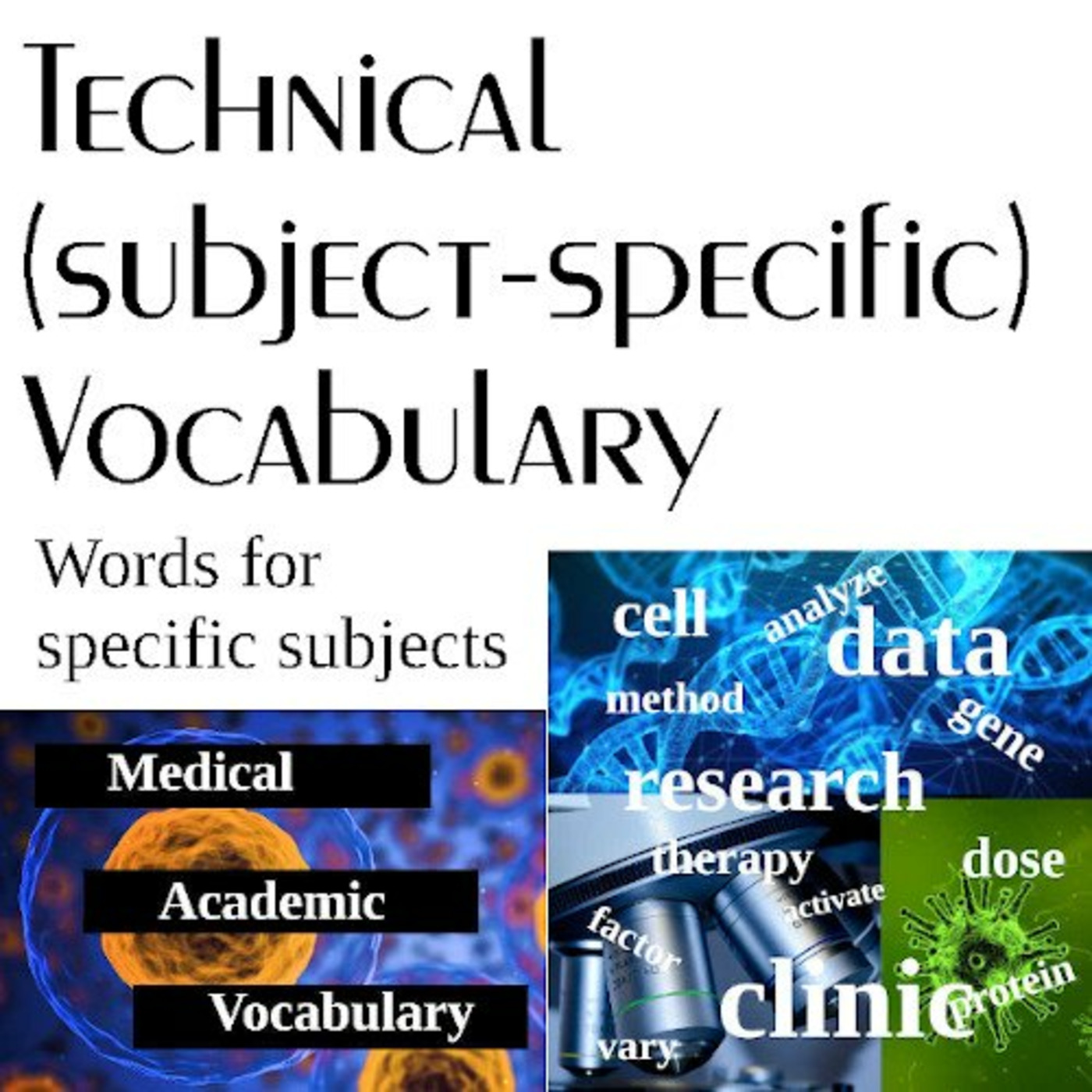
EAP FoundationTechnical (subject-specific) vocabularyEach subject has words which are either used specifically in that subject area (and not in general English), or common words which are used with special meaning in that subject area. Such words are known as technical, domain-specific or subject-specific vocabulary. This podcast explains what subject-specific vocabulary is, and gives an overview of some of the technical lists available for academic study.
2022-02-0705 min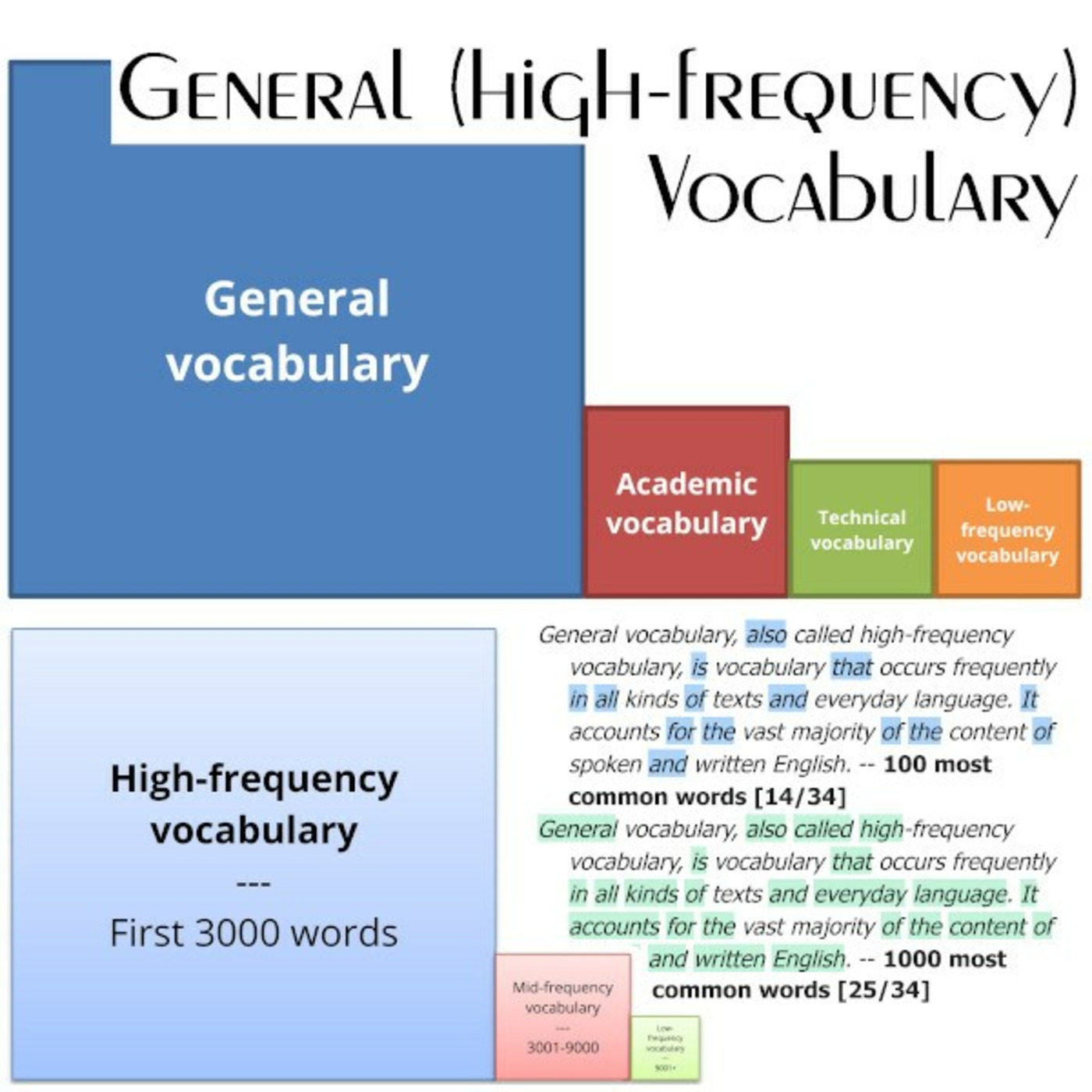
EAP FoundationGeneral (high-frequency) vocabularyGeneral vocabulary, also called high-frequency vocabulary, is vocabulary that occurs frequently in all kinds of texts and everyday language. It is likely to comprise the majority of the words and phrases learners encounter on a General English course at school. This podcast discusses general vocabulary, beginning with a definition, then considering how many words should comprise general vocabulary, looking at two common models of vocabulary: one by Nation (2001), and a more recent one by Schmitt and Schmitt (2014).
2022-02-0405 min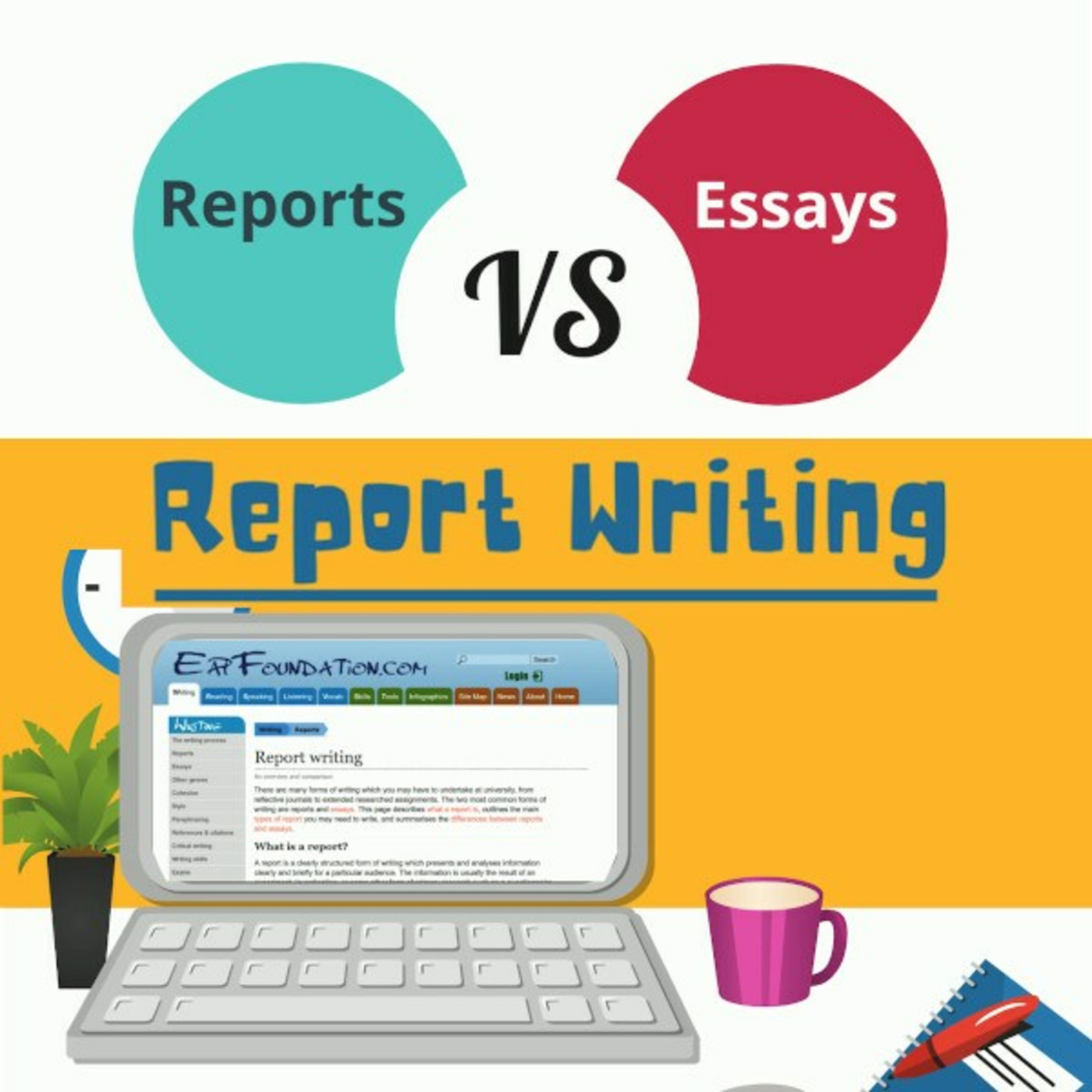
EAP FoundationAcademic report writingThe two most common forms of writing at university are reports and essays. This podcast describes academic reports, giving information on what a report is, outlines the main types of report you may need to write, and summarises the differences between reports and essays.
2022-02-0105 min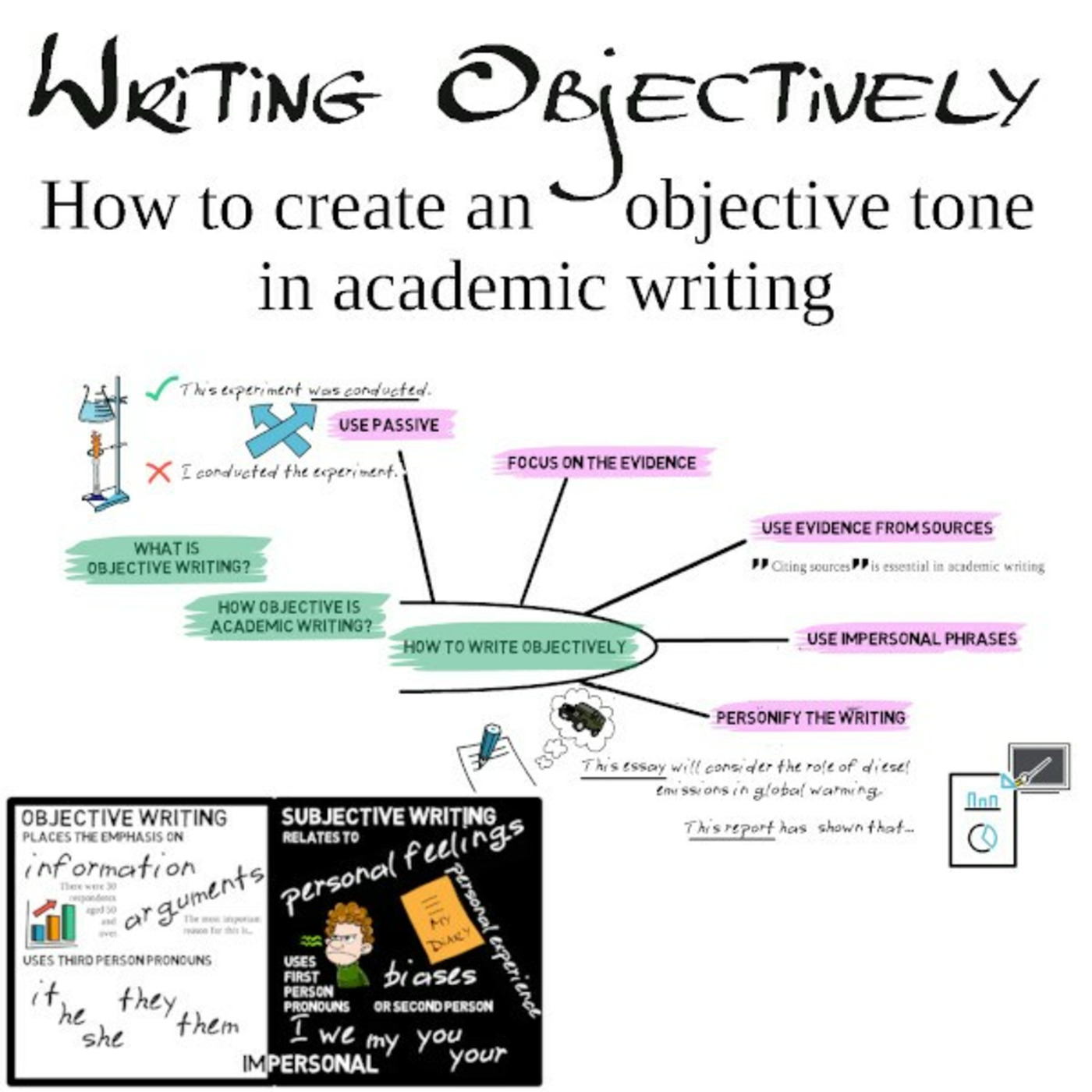
EAP FoundationWriting objectively: How to create an objective tone in academic writingAcademic writing is generally impersonal and objective in tone. This podcast considers what objective writing is, how objective academic writing is, then presents several ways to make your writing more objective, namely: using passive; focusing on the evidence (The findings show...); referring to sources (Newbold (2021) shows...); using impersonal constructions with It and There; using hedges and boosters to show strength of feeling, rather than emotive language; personifying the writing (This report shows...). The writing objectively page on the website also includes an academic article, to show authentic examples of objective language, and a checklist, that you can...
2022-01-3006 min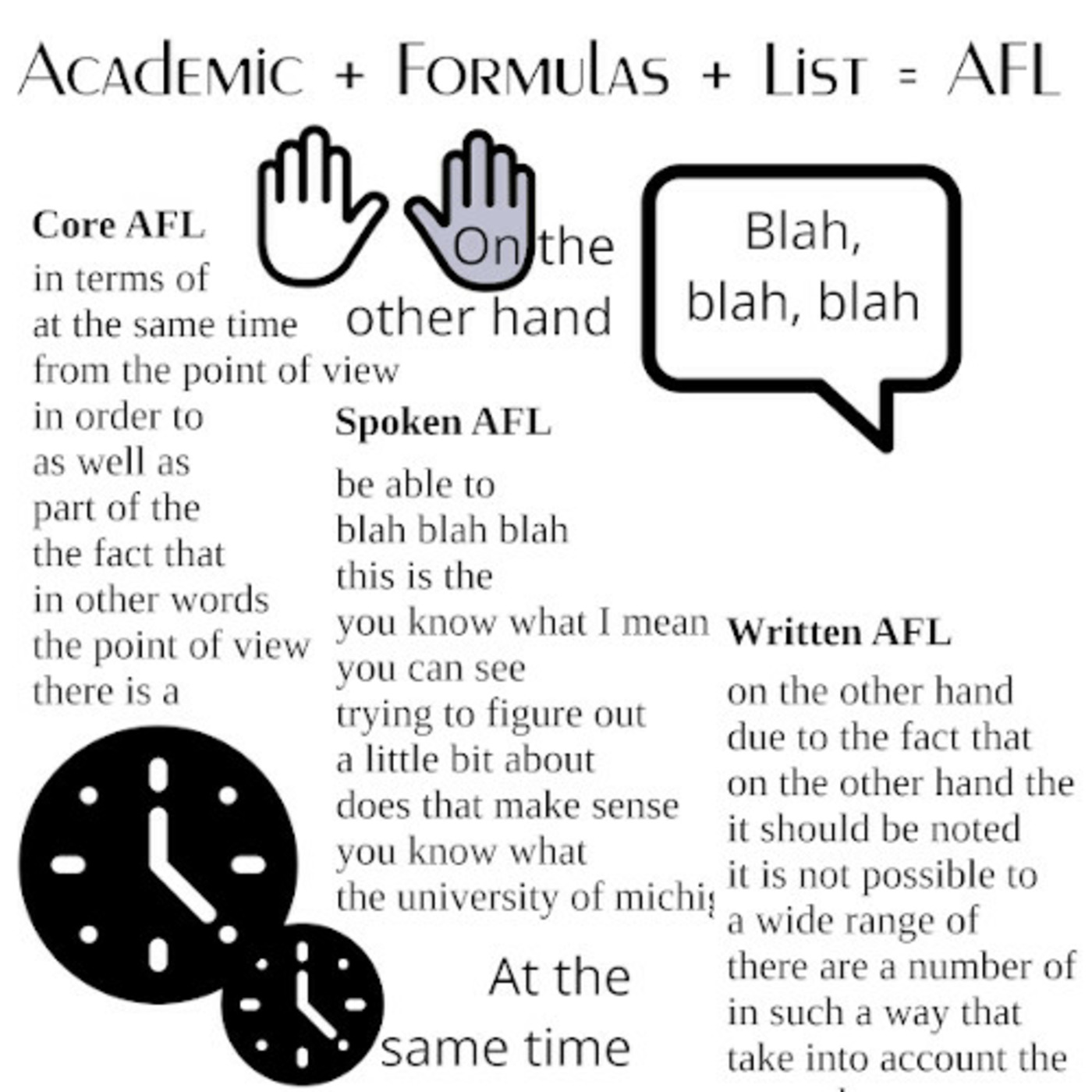
EAP FoundationAcademic Formulas List (AFL)The Academic Formulas List (AFL) is a list of the most common formulaic sequences in academic English, i.e. recurring word sequences three to five words long. There are three separate lists: one for formulas that are common in both academic spoken and academic written language (the 'core' AFL), one for those which are special to academic spoken language, and one for those which are special to academic written language. This podcasts gives an overview of the AFL, as presents the 10 most frequent formulas in each of the three lists.
2022-01-2803 min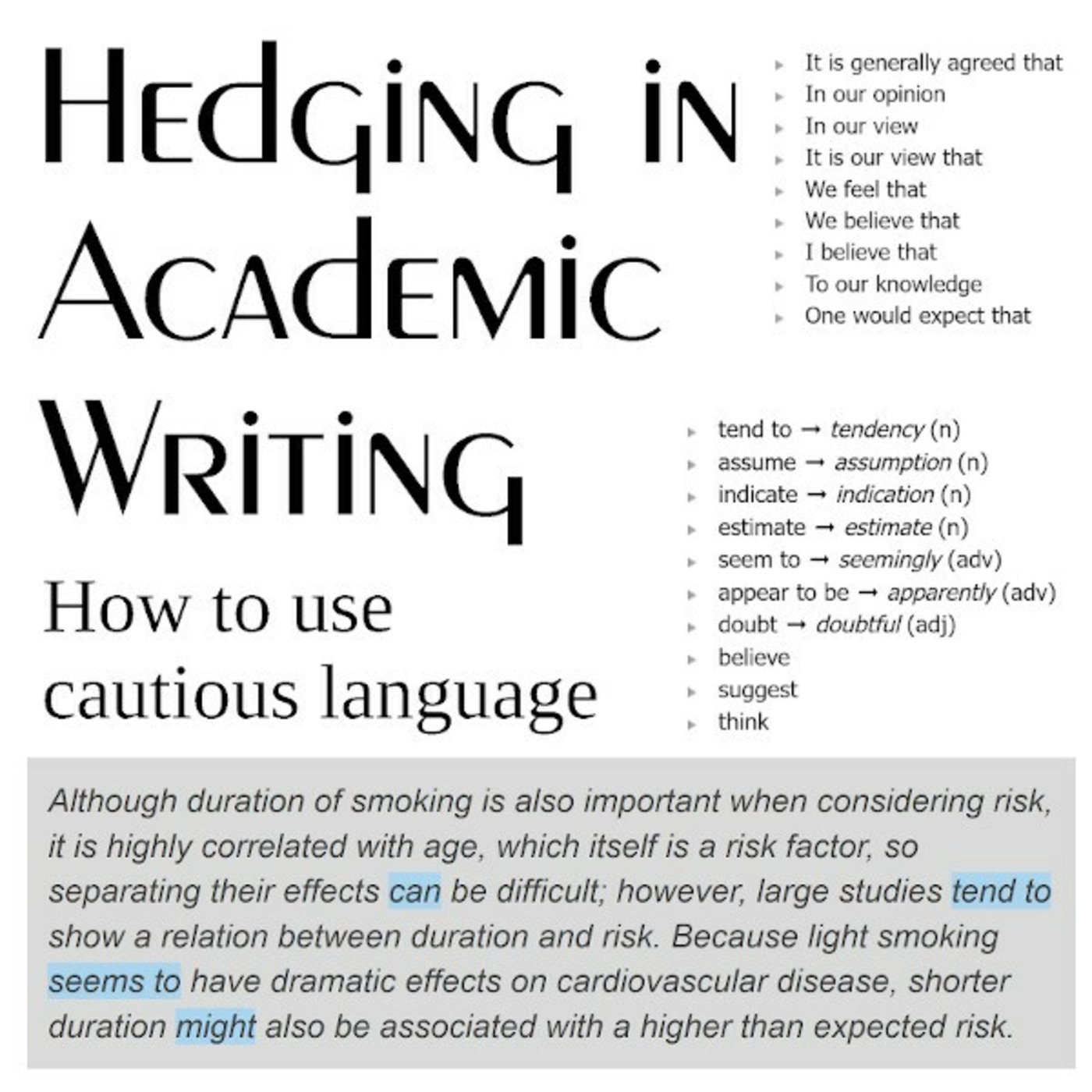
EAP FoundationHedging in Academic WritingHedging, also called caution or cautious language, is an important component of academic style. This podcast explains what hedging is, then looks at different ways to hedge, namely using introductory verbs, modal verbs, adverbs, adjectives, nouns, and some other ways such as adverbs of frequency and introductory phrases. On the website there is as an example passage so you can see each type of hedging in an authentic text, and a checklist so you can check your understanding.
2022-01-2606 min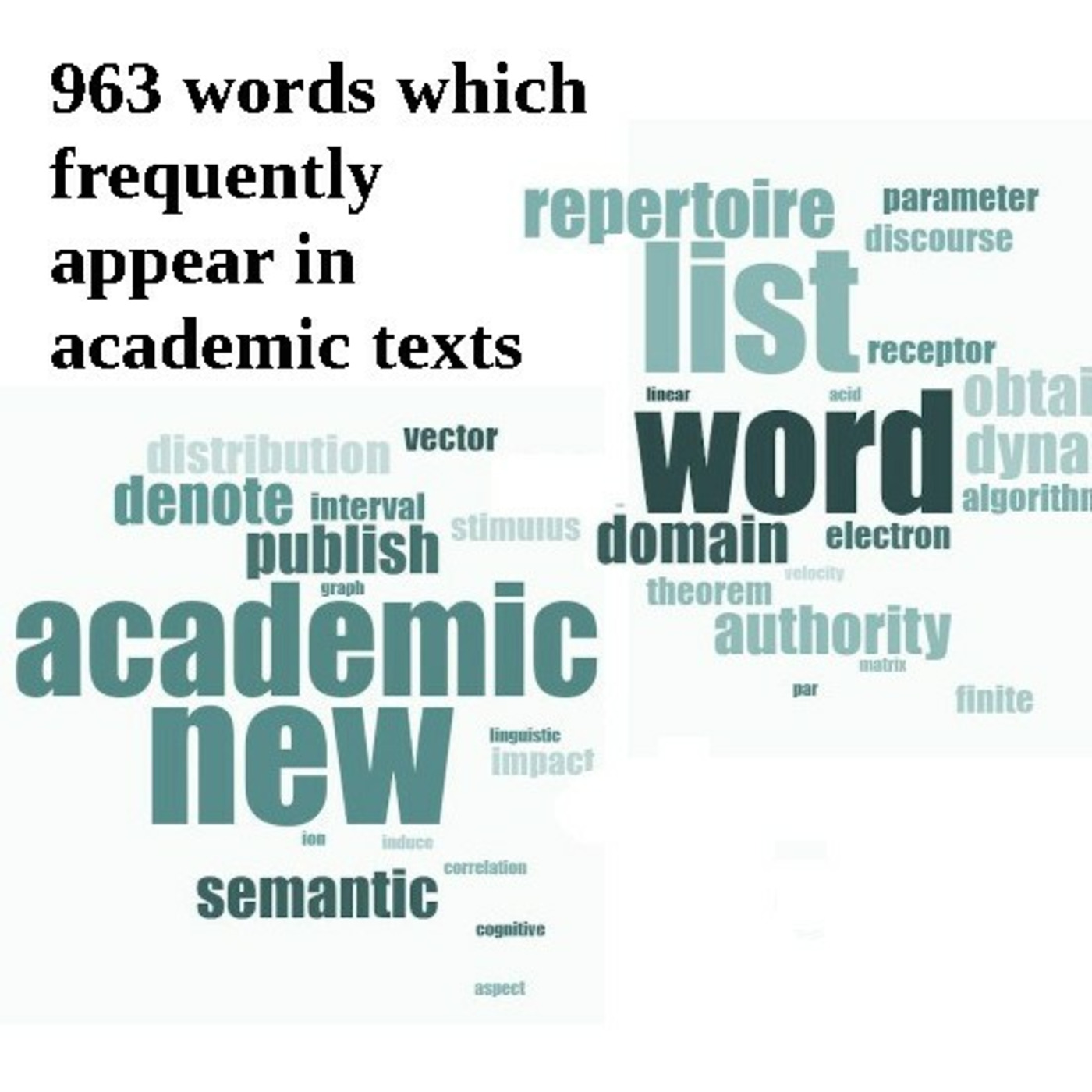
EAP FoundationNew Academic Word List (NAWL)This podcast describes the New Academic Word List (NAWL), giving information on what the NAWL is, as well as the 10 most frequent words in the NAWL.
2022-01-1304 min
EAP FoundationNew General Service List (NGSL)This podcast describes the New General Service List (NGSL), giving information on what the NGSL is, as well as the first 10 words in the NGSL.
2022-01-1103 min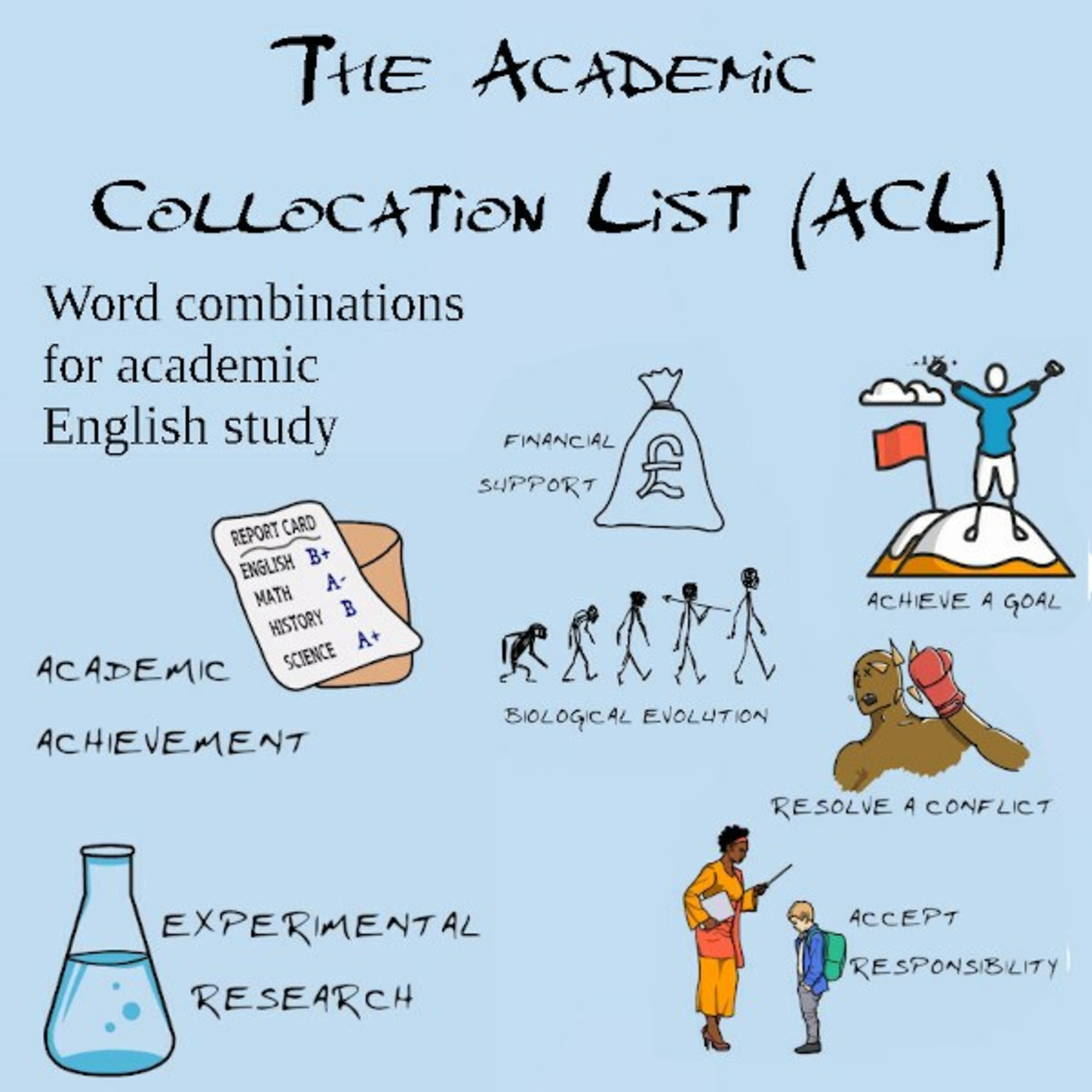
EAP FoundationThe Academic Collocation List (ACL)This podcast describes the Academic Collocation List (ACL), explaining what it is and giving some example collocations.
2022-01-0903 min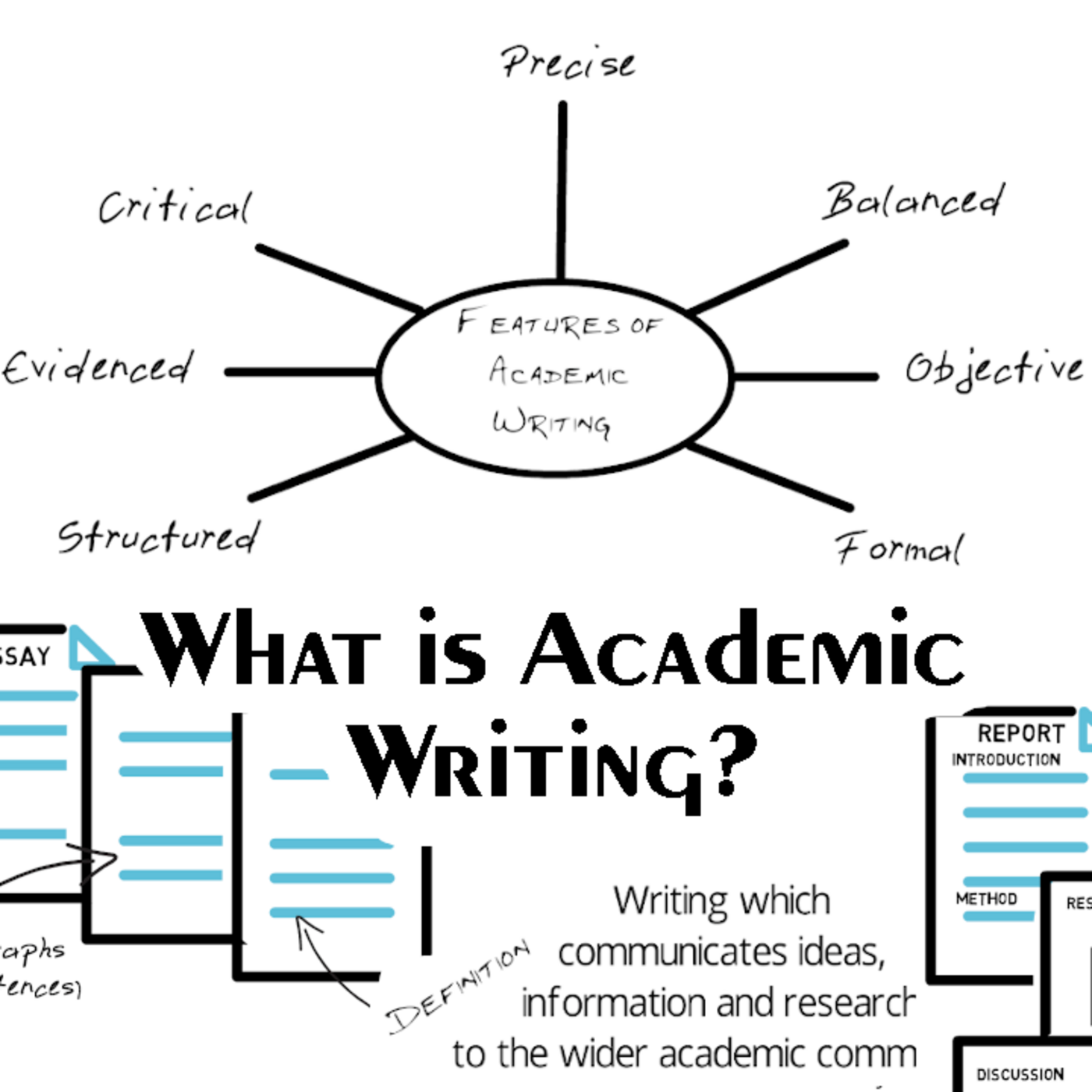
EAP FoundationWhat is academic writing?Academic writing is arguably the most important skill in academic contexts, since writing is the main method of academic communication. It is also the most difficult skill for most students to master. This podcast considers what academic writing is, looking in detail at the main features of academic writing, namely that it is structured, evidenced, critical, balanced, precise, objective, and formal. The podcast also suggests ways for you to develop your academic writing.
2021-12-3105 min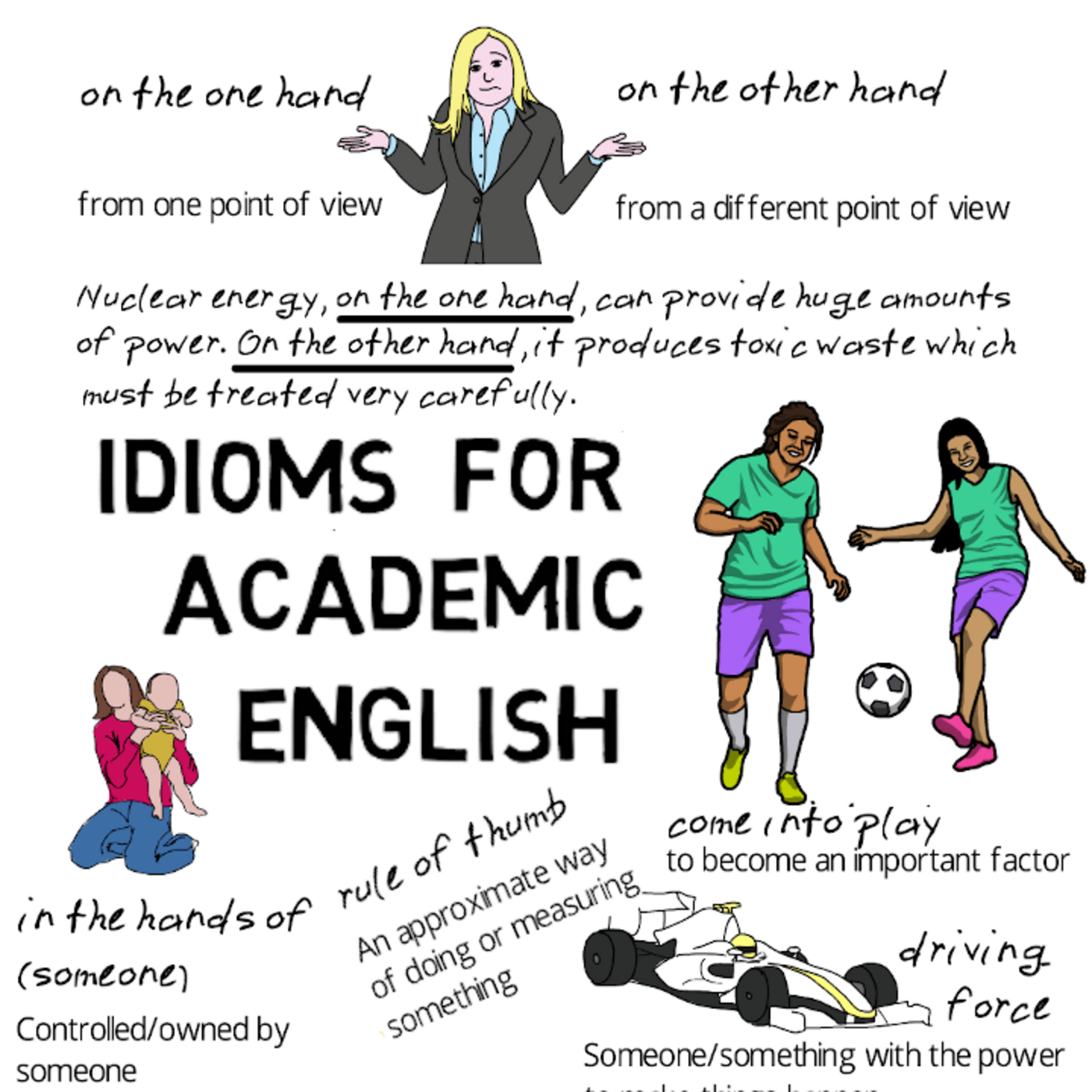
EAP FoundationIdioms for Academic EnglishAlthough it is often assumed that idioms are too informal for use in academic English, two studies have identified idioms which occur fairly frequently in spoken and written academic English. This podcast describes idioms in academic English, giving information on what an idiom is, why academic idioms should be studied, as well as giving the 10 more common academic idioms for spoken and written English from a recent study of idioms (Miller, 2019). The podcast also gives the background to the creation of the list.
2021-12-2906 min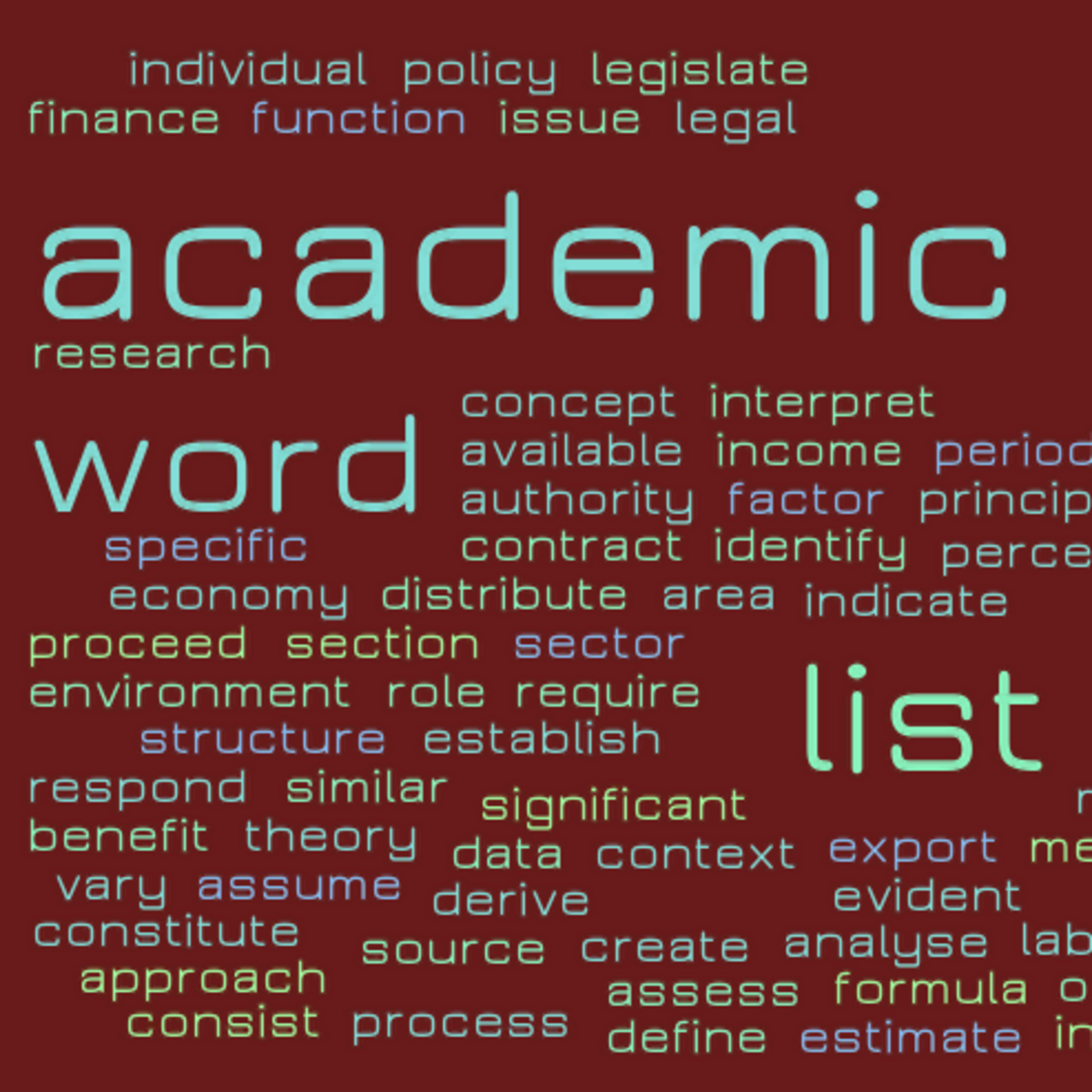
EAP FoundationThe Academic Word List (AWL)This podcast describes the Academic Word List (AWL), giving information on what the AWL is, as well as listing the first 60 headwords of the AWL.
2021-12-2703 min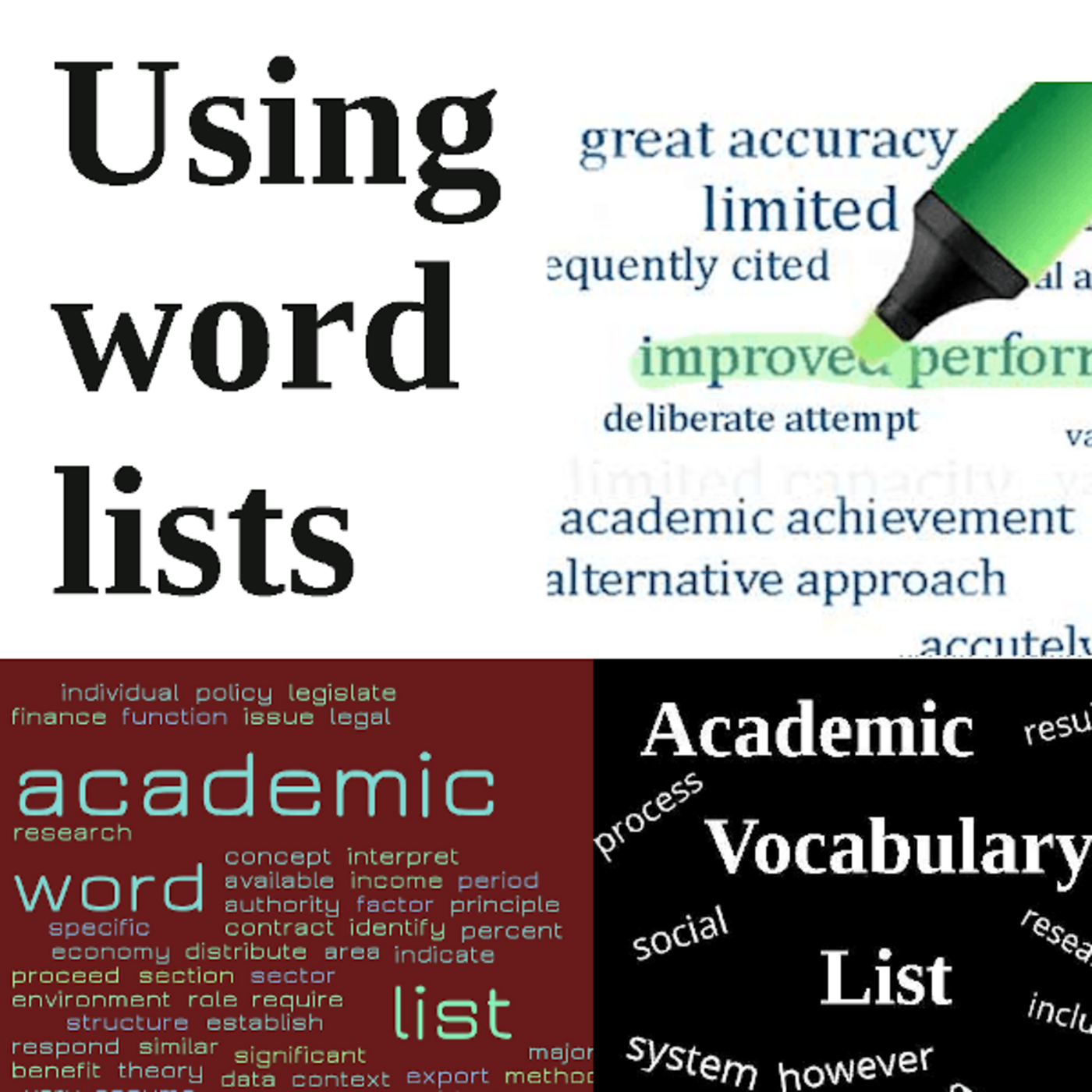
EAP FoundationUsing word listsThere are many word lists for general and academic English study. This podcast gives information on why word lists are important, then presents ideas about how to use word lists. For more information, check out the page on the website, as well as the companion page which gives a detailed overview of the many different word lists available for academic study.
2021-12-0511 min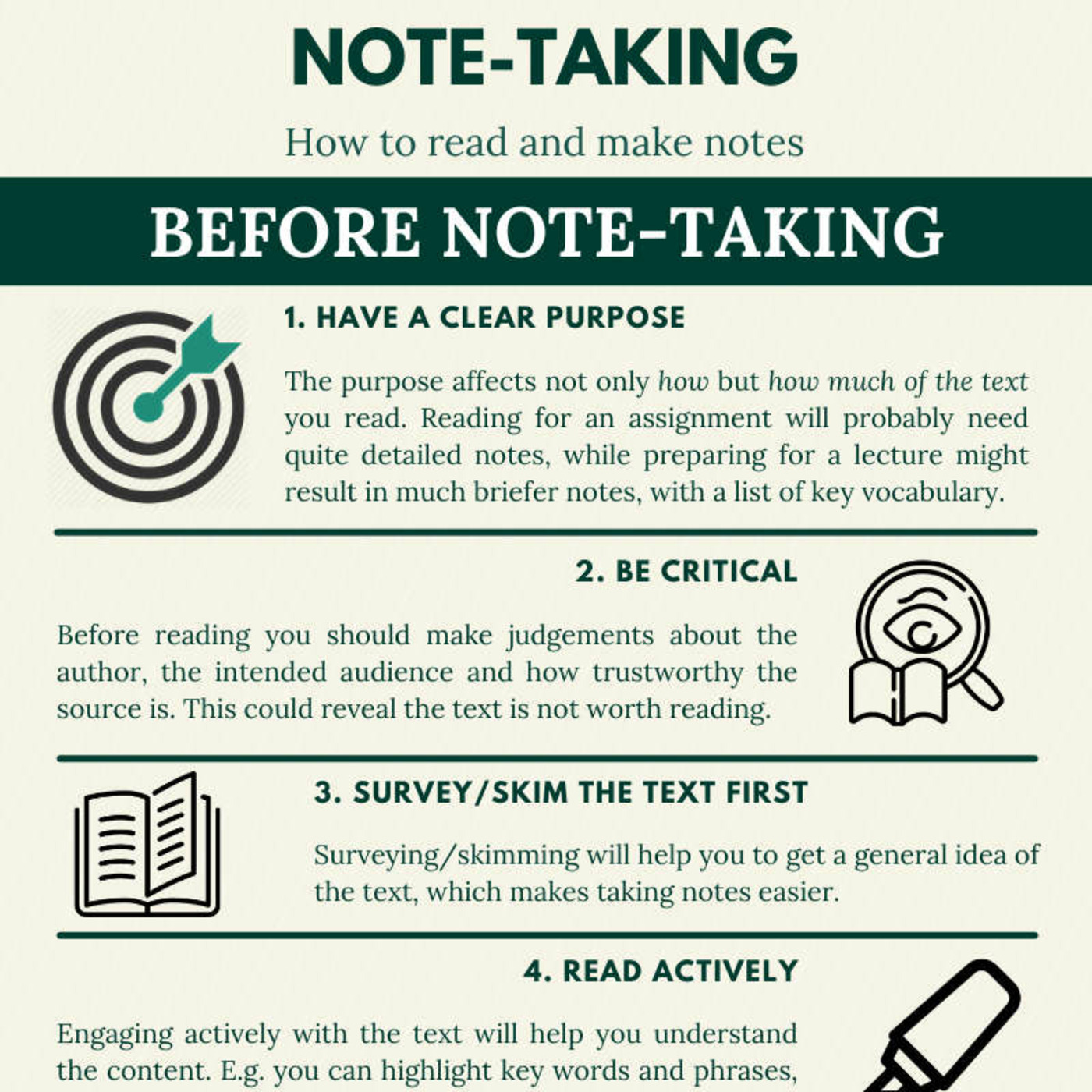
EAP FoundationReading and Note-takingTaking notes, both when reading texts and when listening to lectures or presentations, is an essential aspect of student life. Note-taking for reading has many areas in common with note-taking when listening, for example the need to identify main ideas, to distinguish main from supporting details, to make your notes clear and concise, and to be sure about your purpose before you begin note-taking. There are, however, some important differences, such as the need to skim for main ideas before reading and to be critical while reading and making notes. This podcast considers the basics of note-taking while reading.
2021-06-2604 min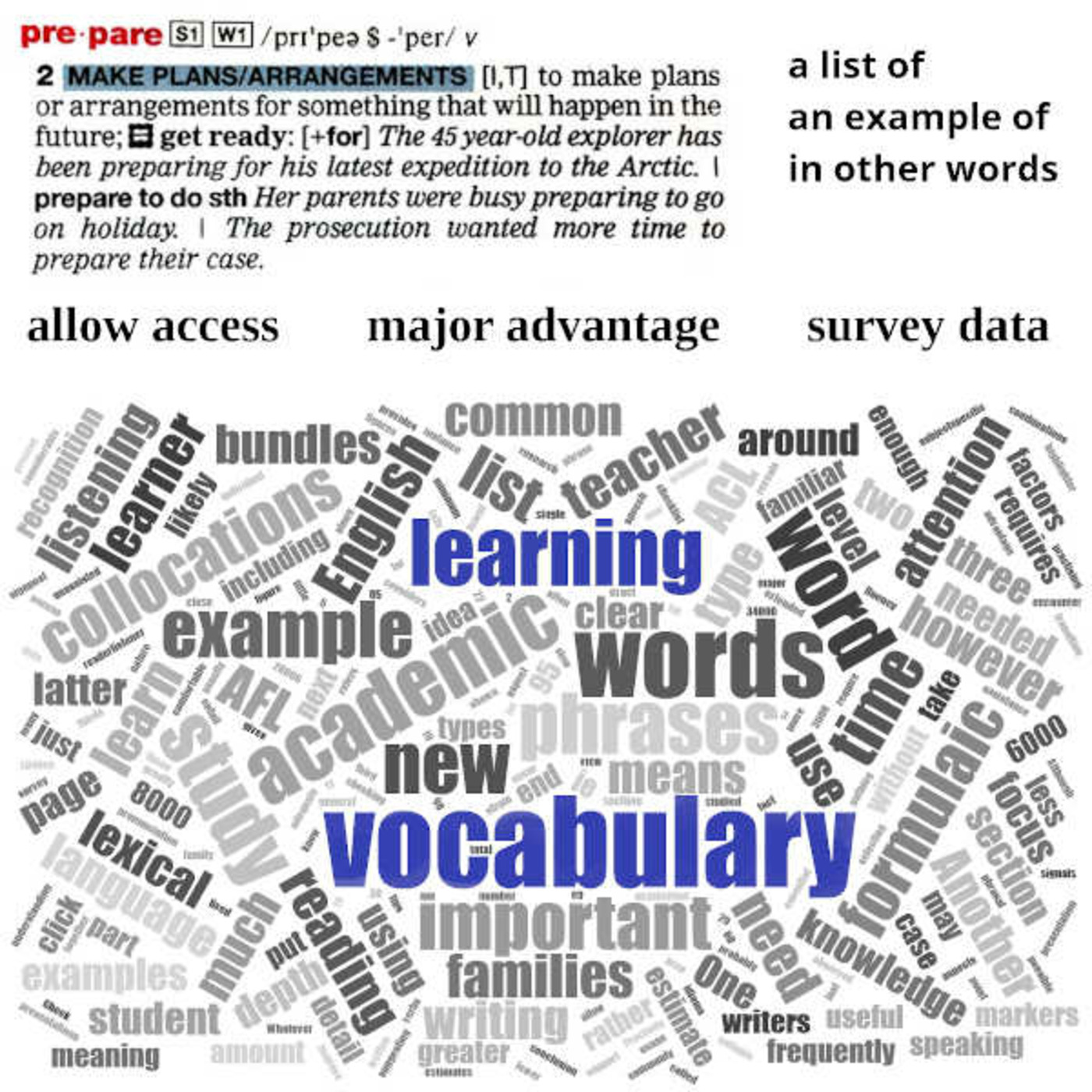
EAP FoundationLearning Vocabulary for Academic EnglishLearning vocabulary is an important aspect of academic study. This podcast considers how much vocabulary to learn, the type of vocabulary to study, including formulaic phrases, and gives some tips on how to learn vocabulary.
2021-06-0408 min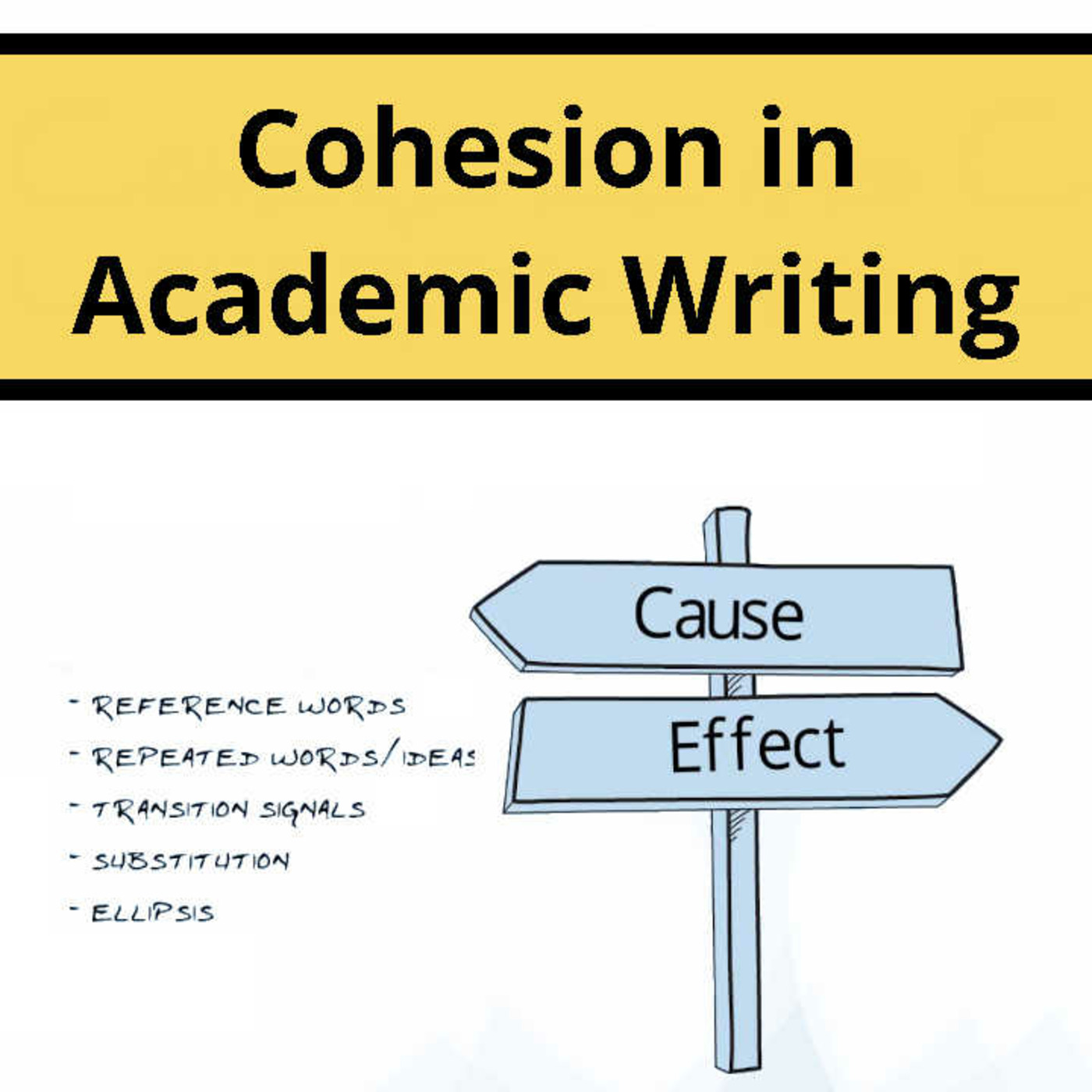
EAP FoundationCohesion in Academic WritingCohesion and coherence are important features of academic writing. They are one of the features tested in exams of academic English, including the IELTS test and the TOEFL test. This podcast gives information on what cohesion is and how to achieve good cohesion. It also explains the difference between cohesion and coherence, and how to achieve good coherence.
2021-05-3111 min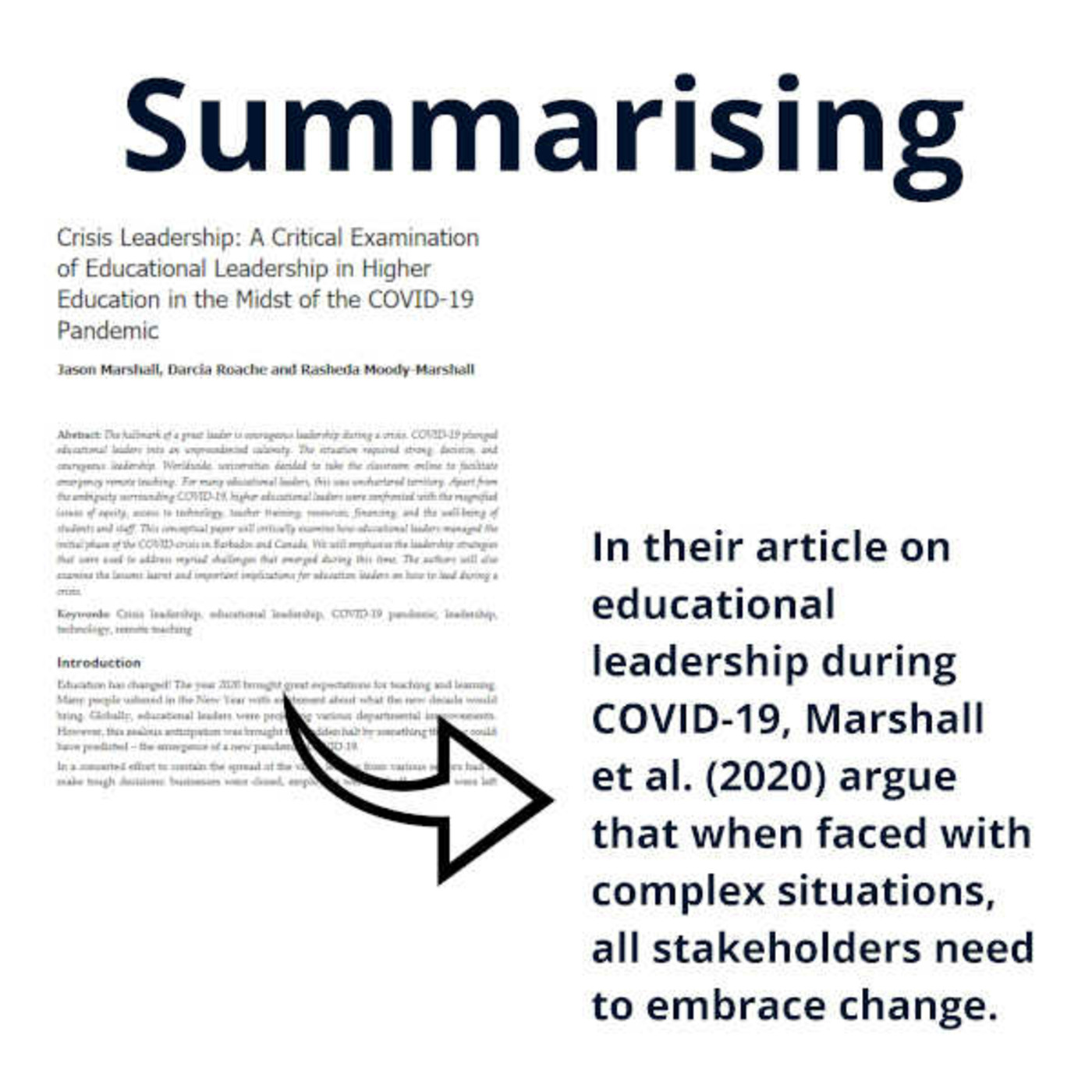
EAP FoundationSummarising for Academic WritingIn academic writing you often have to summarise part of a book or journal article. It is one of three ways of using another writer's work in your own (the other two being quotation and paraphrase). Your summary may be just one or two sentences, to explain the main idea of the article or compare it with another text, or it might be much longer, up to 50% of the original. This podcast explains the steps in writing a summary, as well as giving some useful language for summary writing.
2021-05-2905 min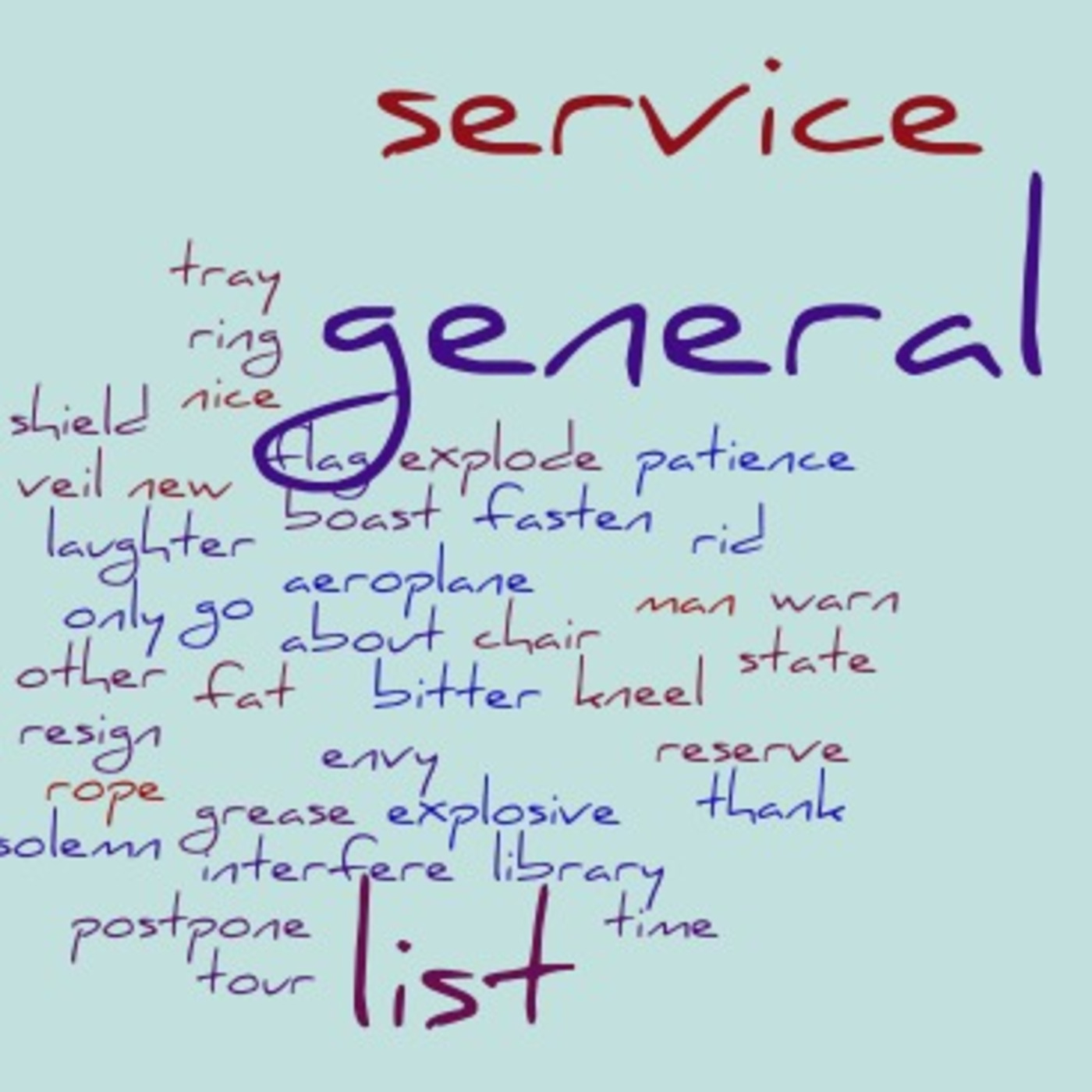
EAP FoundationGeneral Service List (GSL)This podcast describes the General Service List (GSL), explaining what it is, details about the list, and why it is important for academic study. There is also information about the New GSL (NGSL), as well as note on the information and GSL tools contained on EAPFoundation.com.
2021-05-2904 min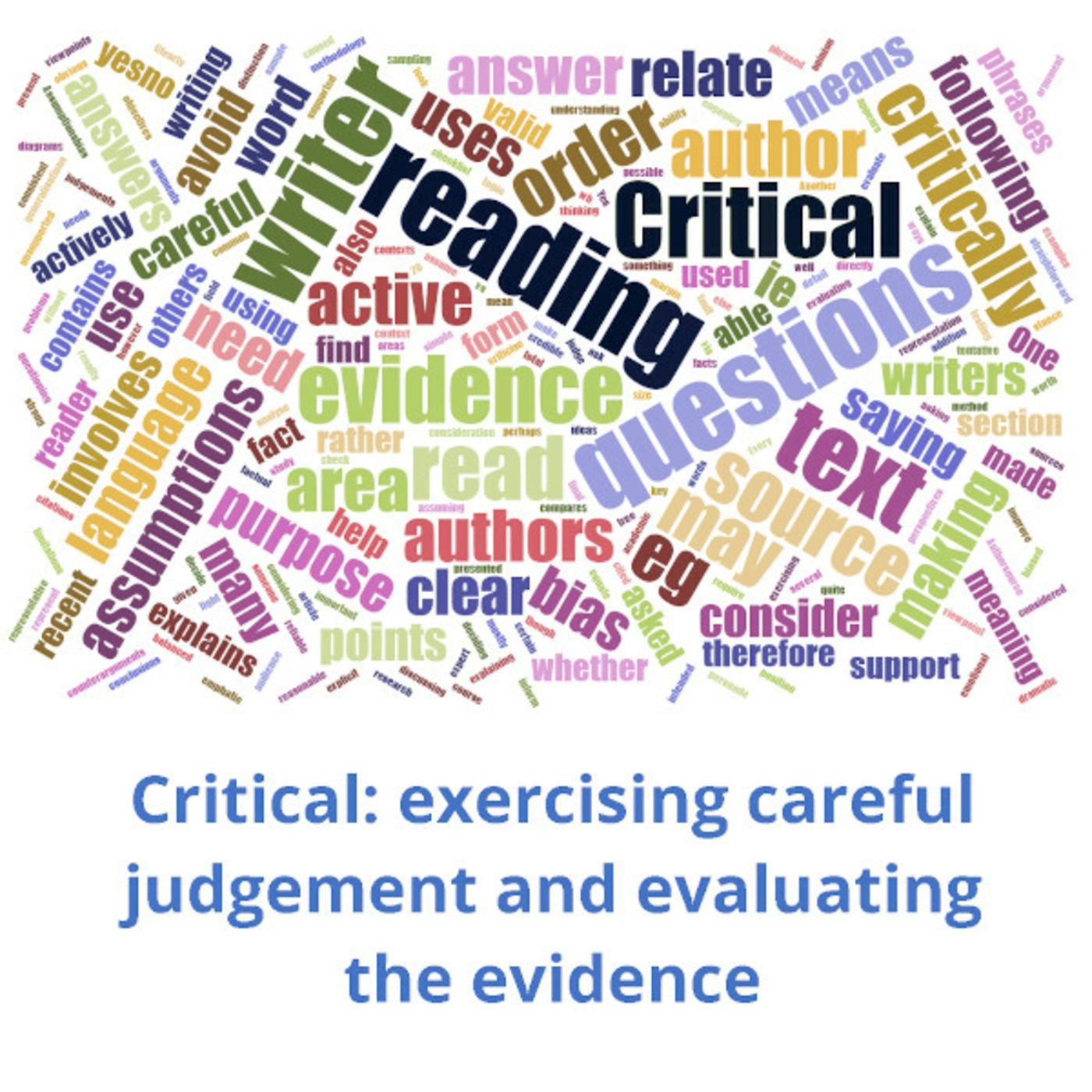
EAP FoundationCritical ReadingIn academic contexts you cannot assume that everything you read is a simple representation of the facts. Every area of study has many different perspectives, and you will need to understand not only what a writer is saying, but how and why they are saying it, in order to judge how credible the information and arguments are. This involves reading critically. This podcast explains in detail what critical reading is, compares critical reading to active reading, and explains how to read critically by considering the author and source, the evidence the writer uses, and the assumptions and bias the writer...
2021-05-2806 min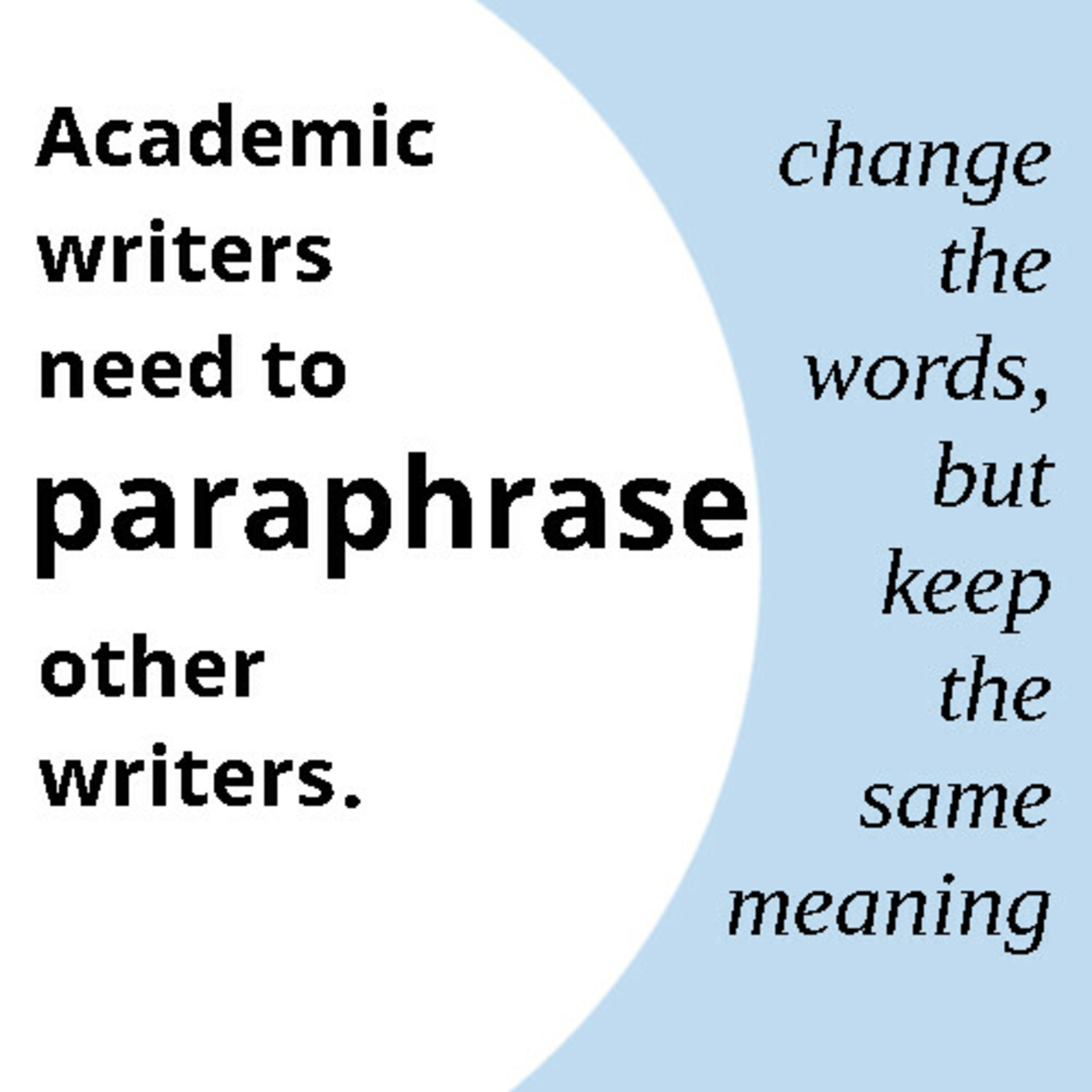
EAP FoundationParaphrasing in Academic WritingIn academic writing, you will need to use other writer's ideas to support your own. The most common way to do this is by using paraphrase. This podcast considers how to do this by first looking in more detail at what paraphrasing is, then giving reasons for using paraphrase, and finally considering how to paraphrase.
2021-04-0805 min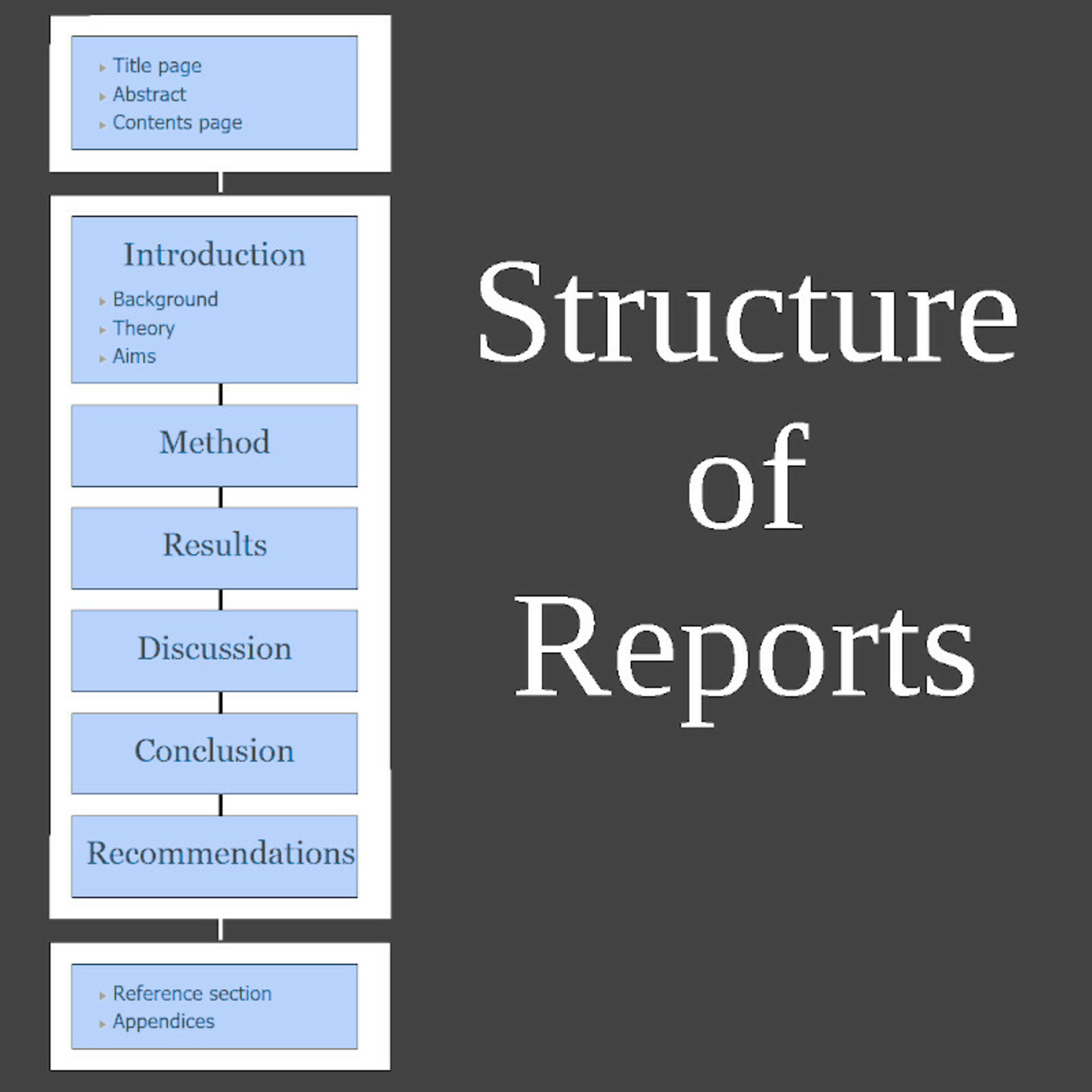
EAP FoundationStructure of ReportsReports are a common academic genre at university. Although the exact nature will vary according to discipline, the general structure is broadly similar for all disciplines. This podcast examines the typical structure of a report, often referred to as IMRAD, which is short for Introduction, Method, Results And Discussion.
2020-08-2206 min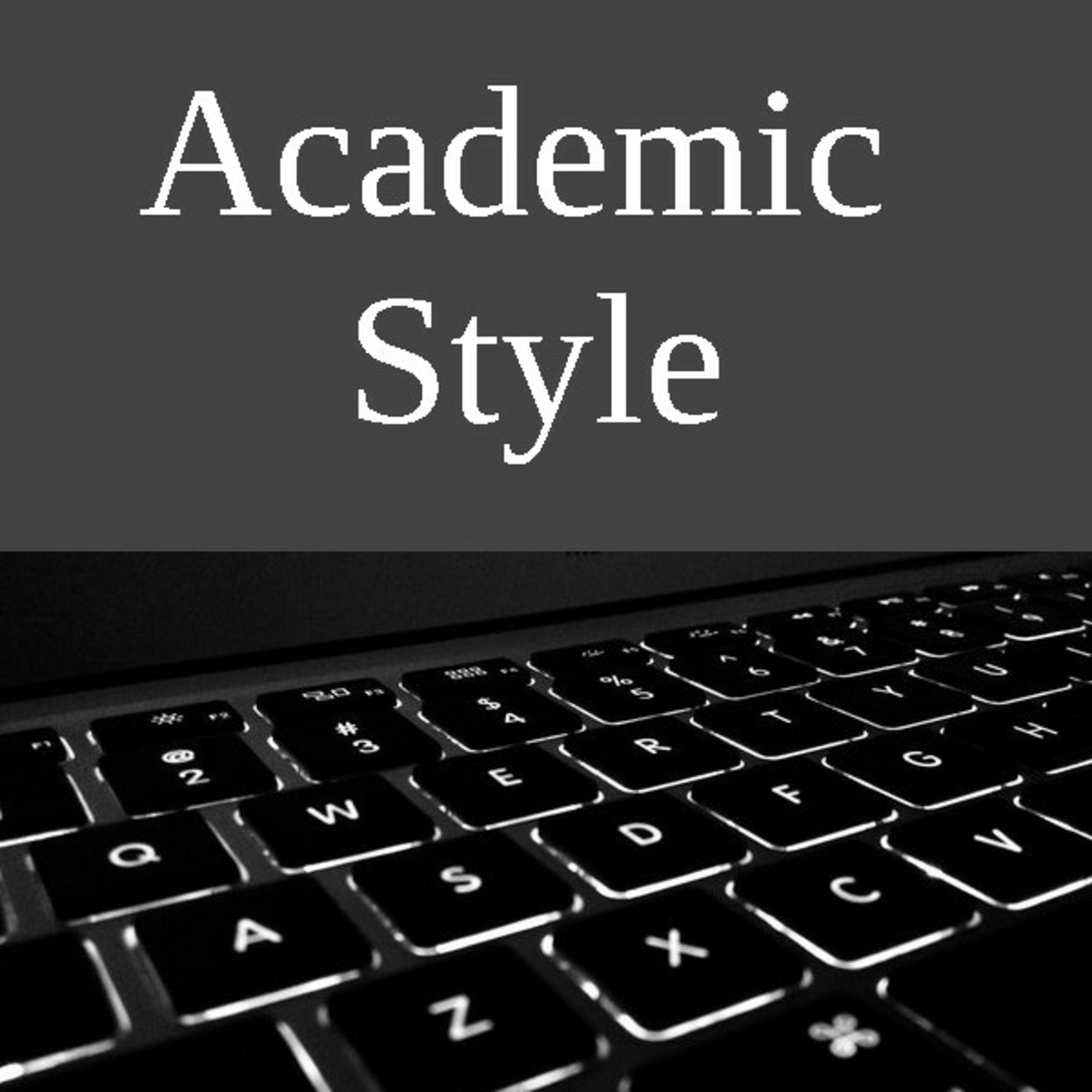
EAP FoundationAcademic Writing StyleAcademic English, like any writing, has its own conventions or 'style'. This podcast considers 10 'rules' for good academic writing in English. These rules are concerned with the use of: formality (rules 1-5); objectivity (rule 6); precision (rules 7-8); tentative language (rule 9); explicit links (rule 10).
2020-08-2207 min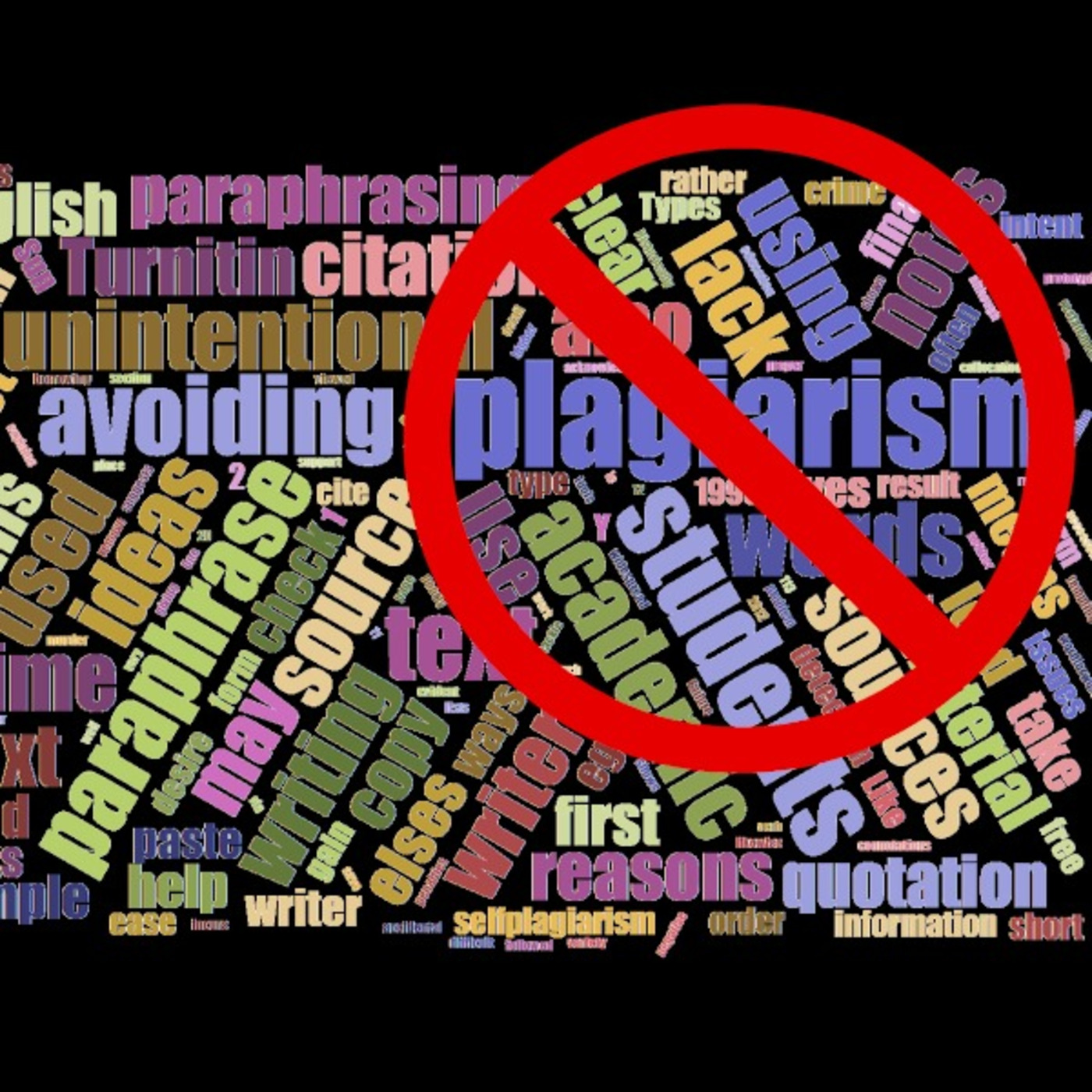
EAP FoundationAvoiding PlagiarismAcademic writers need to use material from other writers to support their own ideas. Failure to integrate this material appropriately can lead to plagiarism, a form of academic misconduct. This podcast explains what plagiarism is, gives types of plagiarism, gives some examples of acceptable and unacceptable source use, lists reasons why students plagiarise, and suggests ways to avoid plagiarism.
2020-07-0909 min
Med Lang Fanatic#23. Medical Academic Vocabulary List [MAVL]Tóm tắt nội dung:
Có 2 bộ từ vựng hàn lâm y khoa được đề cập: MAVL và MAWL.
MAVL có độ phủ gần gấp đôi MAWL với số từ cần phải học ít hơn.
Để tìm hiểu thêm về MAVL: https://www.eapfoundation.com/vocab/academic/other/mavl/
2020-06-1703 min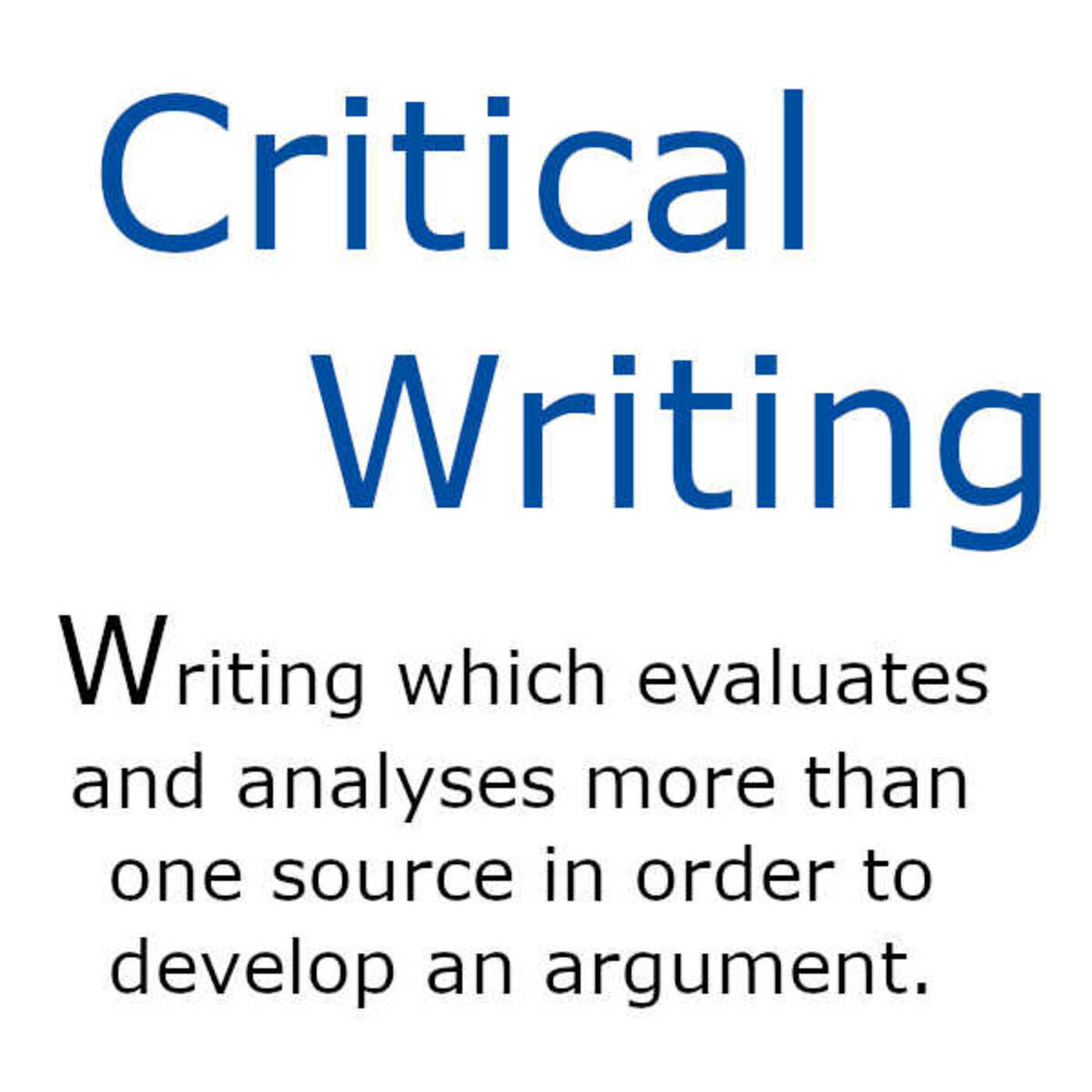
EAP FoundationCritical writingIn academic writing you will develop an argument or point of view. This will be supported by concrete evidence, in other words reasons, examples, and information from sources. The writing you produce in this way will need to be 'critical writing'. This podcasts considers what critical writing means, explains how to write critically, contrasts critical writing with descriptive writing, with some examples, and finally shows how critical writing relates to Bloom's taxonomy of thinking skills.
2019-11-0312 min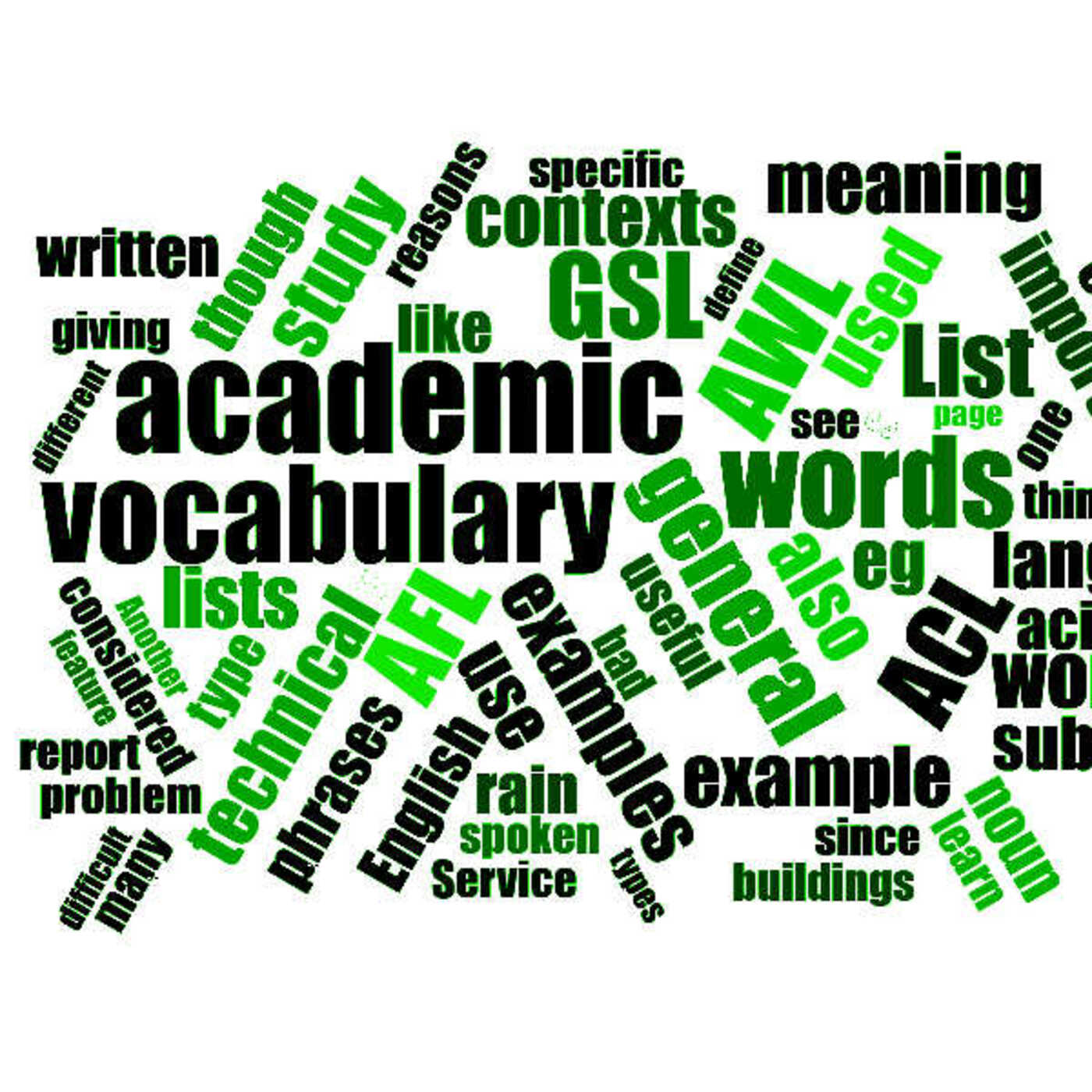
EAP FoundationAcademic vocabularyThis podcast discusses academic vocabulary, beginning with a definition of academic vocabulary, then looking at different types of vocabulary used in academic contexts, namely general words, non-general 'academic' words, and technical words. Another important feature of academic vocabulary, nominalisation, is also considered.
2019-11-0209 min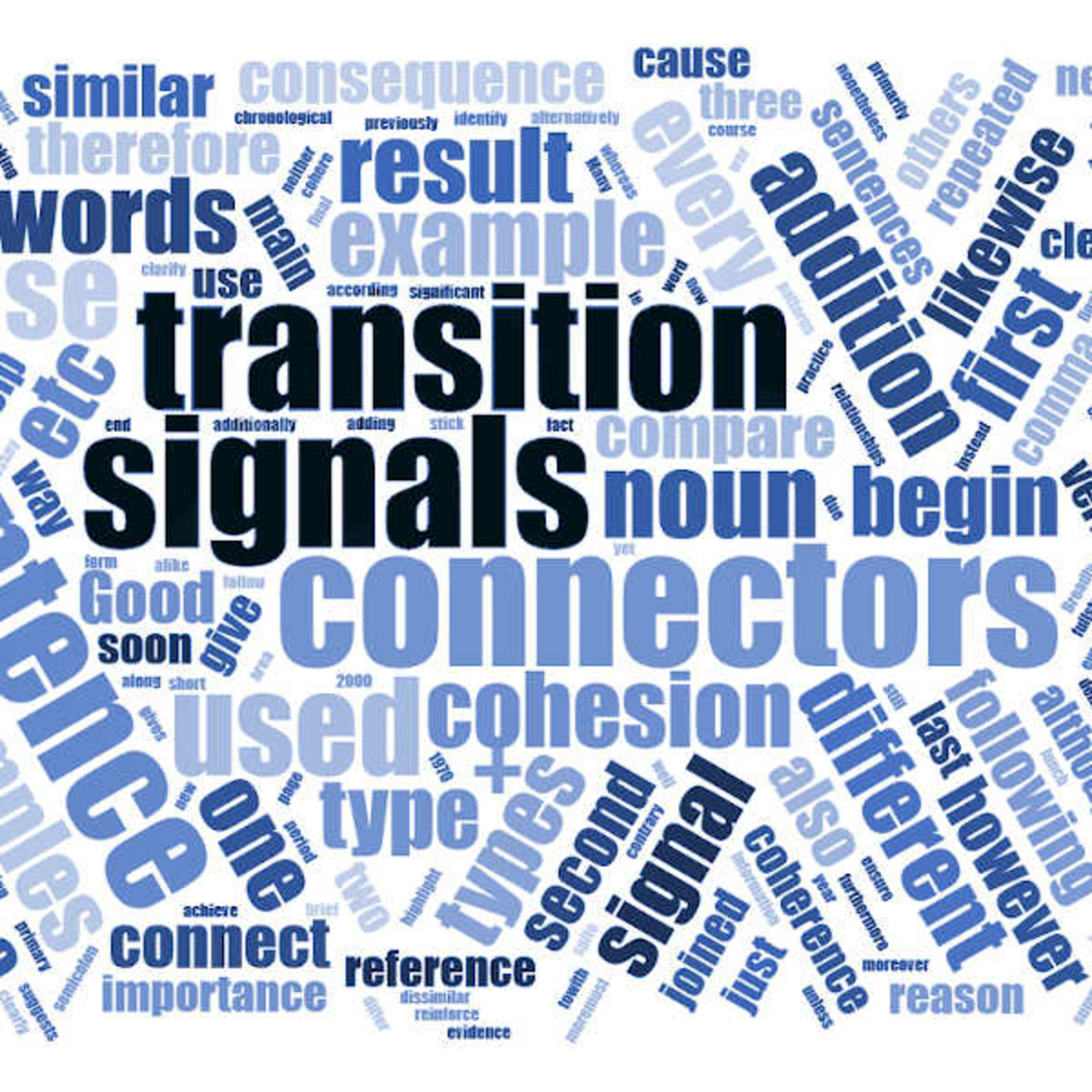
EAP FoundationTransition signalsTransition signals are useful in achieving good cohesion and coherence in writing. This podcast gives information on what transition signals are, the grammar of transition signals, and different types of transition signals.
2019-10-3005 min
EAP FoundationReporting verbsIn academic writing, you will need to cite (or 'refer to') other people's work or ideas. In order to do this accurately, you will need to use reporting verbs to link your in-text citation to the information cited. This podcast looks at what reporting verbs are, and the strength and grammar of reporting verbs.
2019-10-2004 min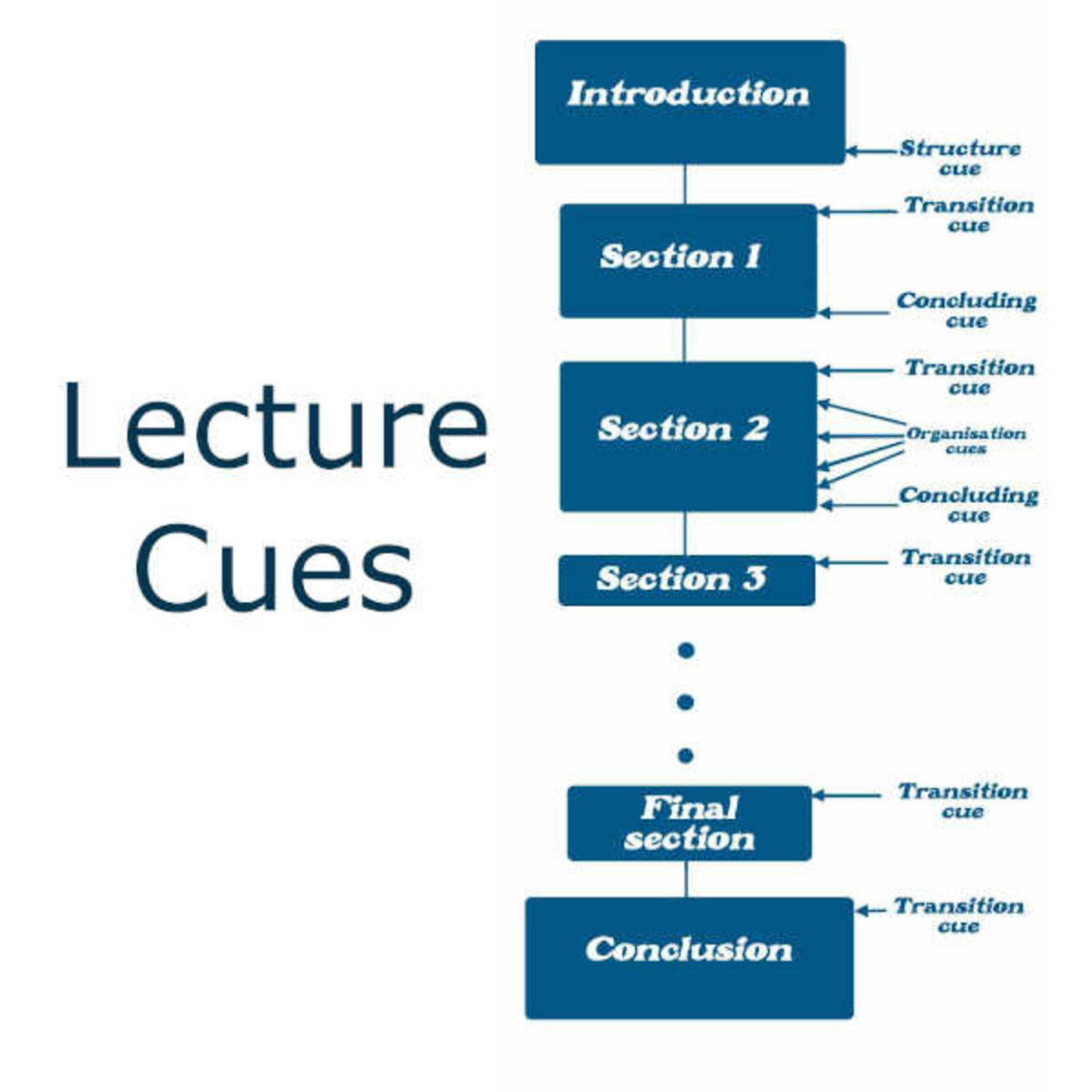
EAP FoundationLecture cuesLecture cues are words or phrases which lecturers use to help you understand their lectures. This podcast explains cues to signal the structure (structure cues), different parts of the talk (transition cues and concluding cues), and the connection between ideas (organisation cues).
2019-09-2107 min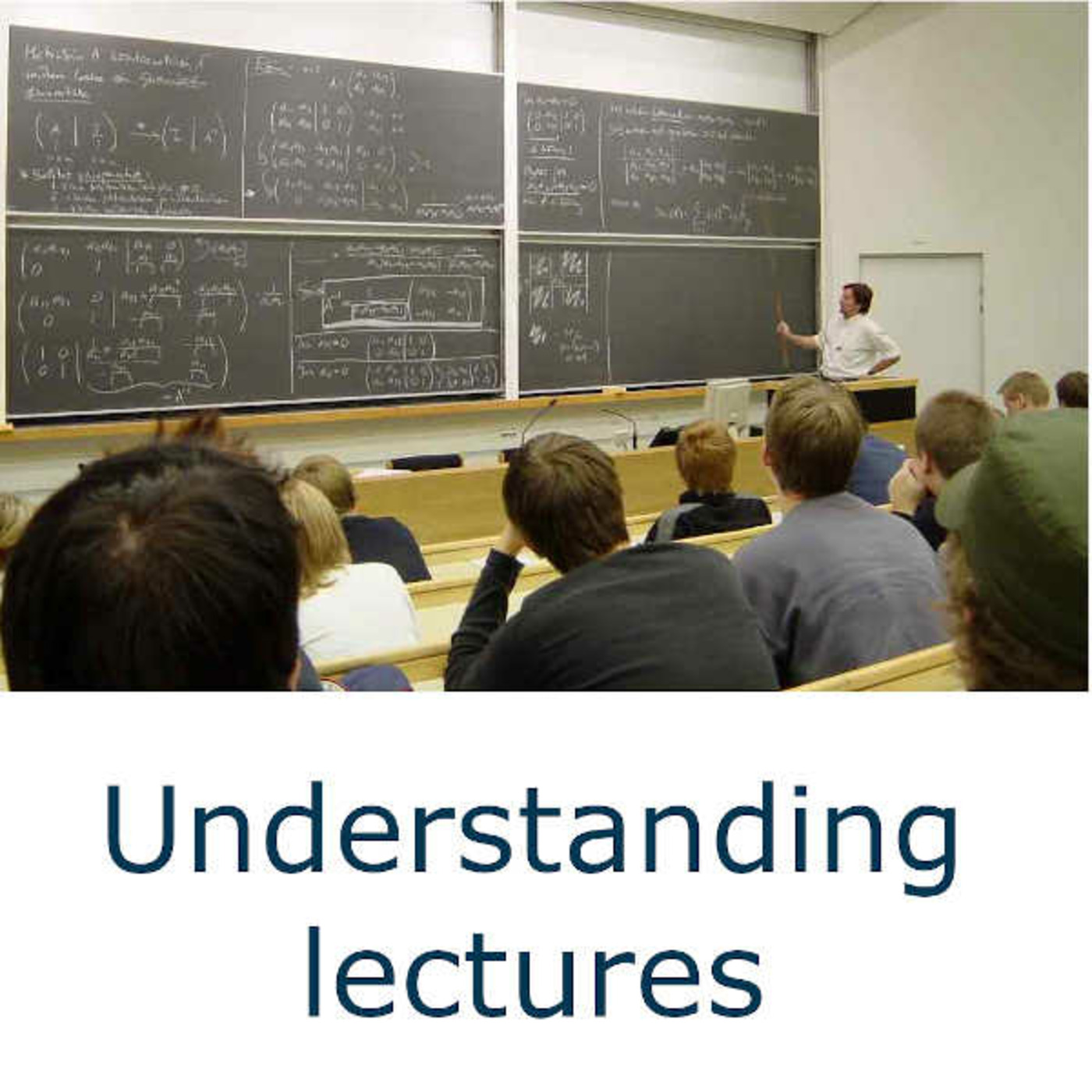
EAP FoundationUnderstanding lecturesUnderstanding a lecture is not simply a matter of attending the lecture and listening. You need to prepare for the lecture by doing some pre-lecture activities; you need to be active during the lecture by listening for the main points and making notes; and you need to do follow-up work after the lecture has finished to consolidate your understanding. Each of these stages is described in more detail in this podcast.
2019-09-2103 min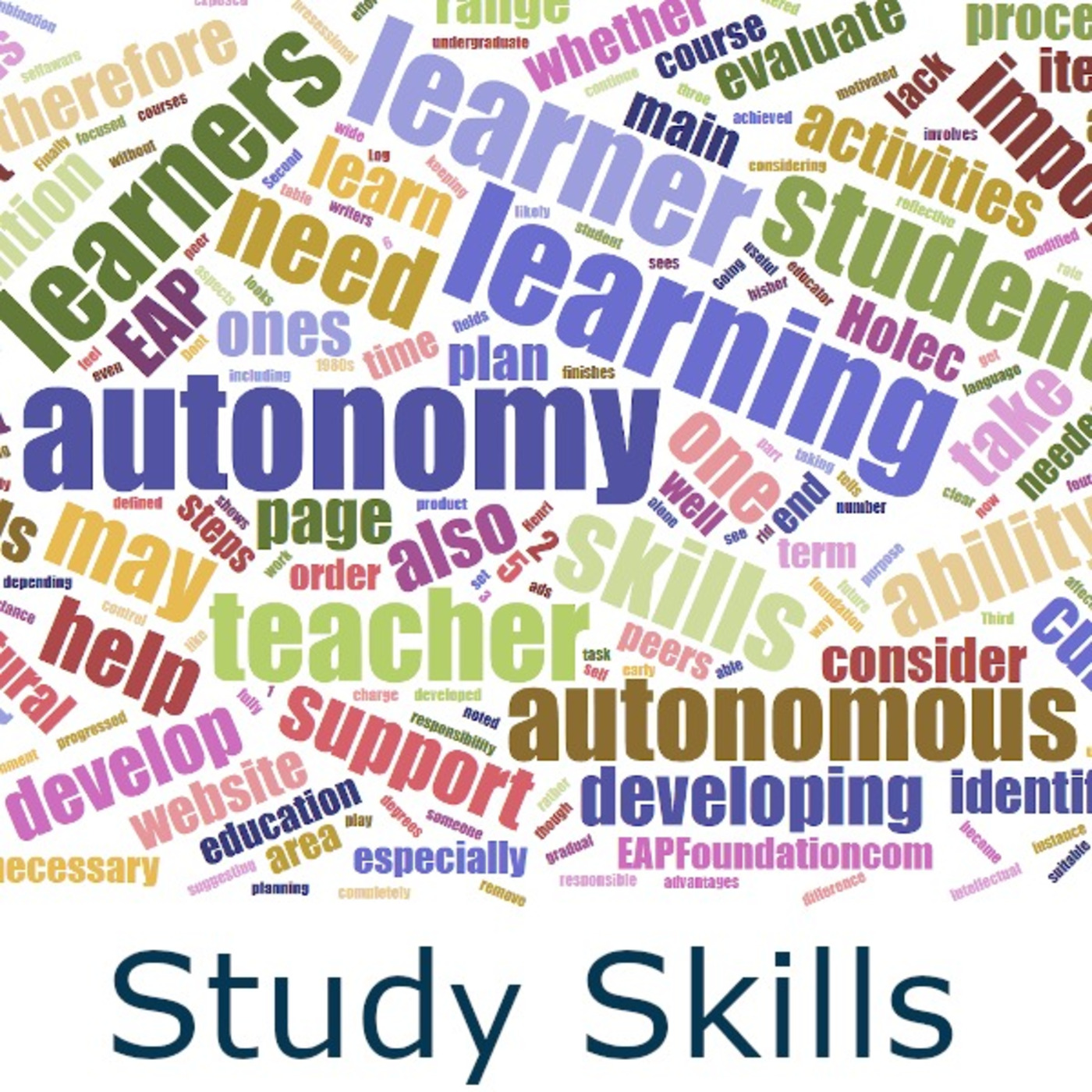
EAP FoundationLearner Autonomy (Study Skills podcast)Learner autonomy is an important concept in educational fields, including language learning ones such as EAP. This podcast, part of the study skills series, considers what learner autonomy is, what skills autonomous learners need and why learner autonomy is important. It also looks at how learner autonomy can be developed, as well as considering the cultural aspects of learner autonomy. The podcast finishes by considering how the EAPFoundation.com website helps students to develop autonomy.
2019-09-1408 min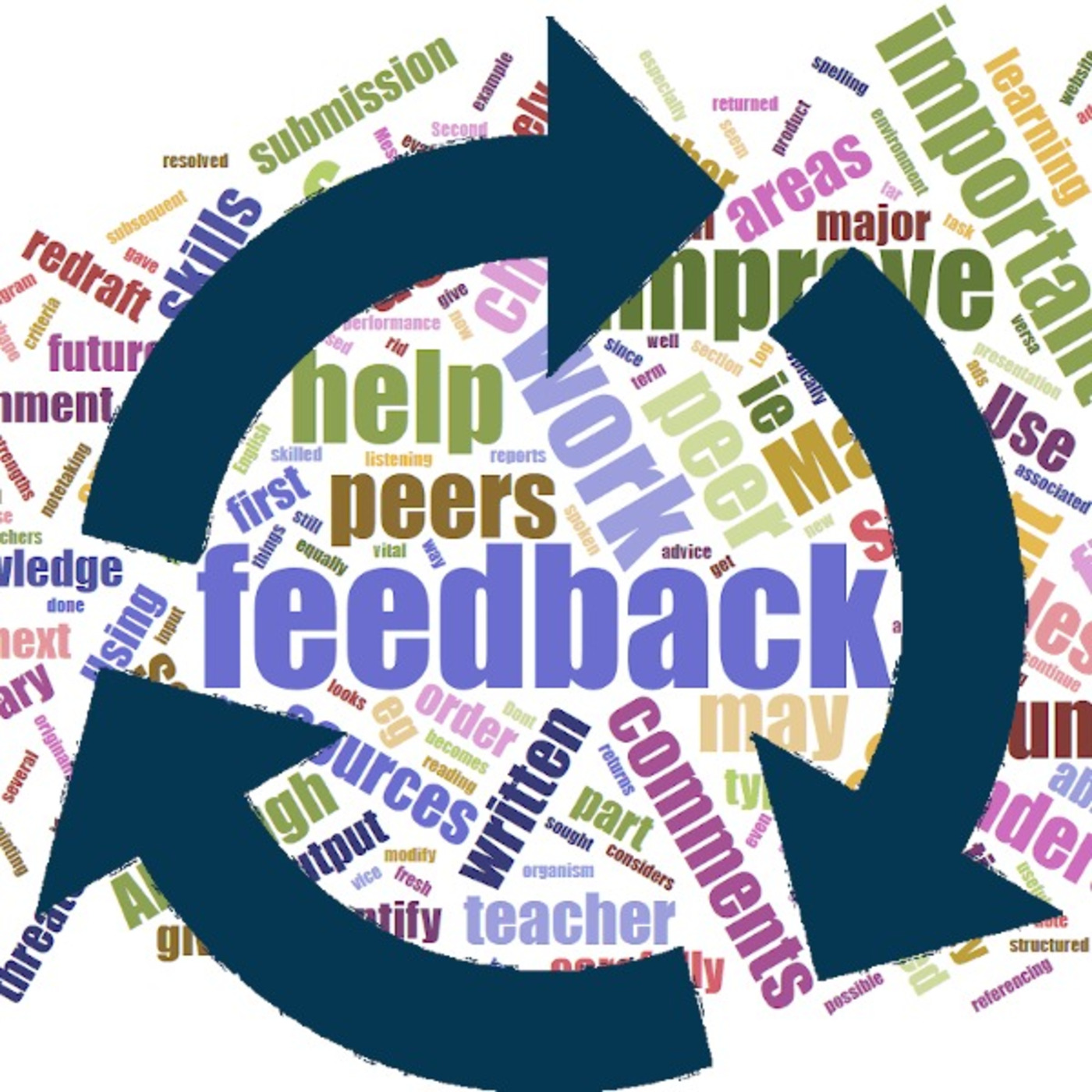
EAP FoundationFeedback (Study Skills podcast)Feedback is an important way to improve performance. Feedback is typically associated with written work, e.g. essays or reports, but is equally vital for other areas of English, such as presentation skills or even note-taking when reading or listening. This podcast, part of the study skills series, considers why feedback is important, looks at the main sources of feedback, then gives some advice on using feedback.
2019-09-1404 min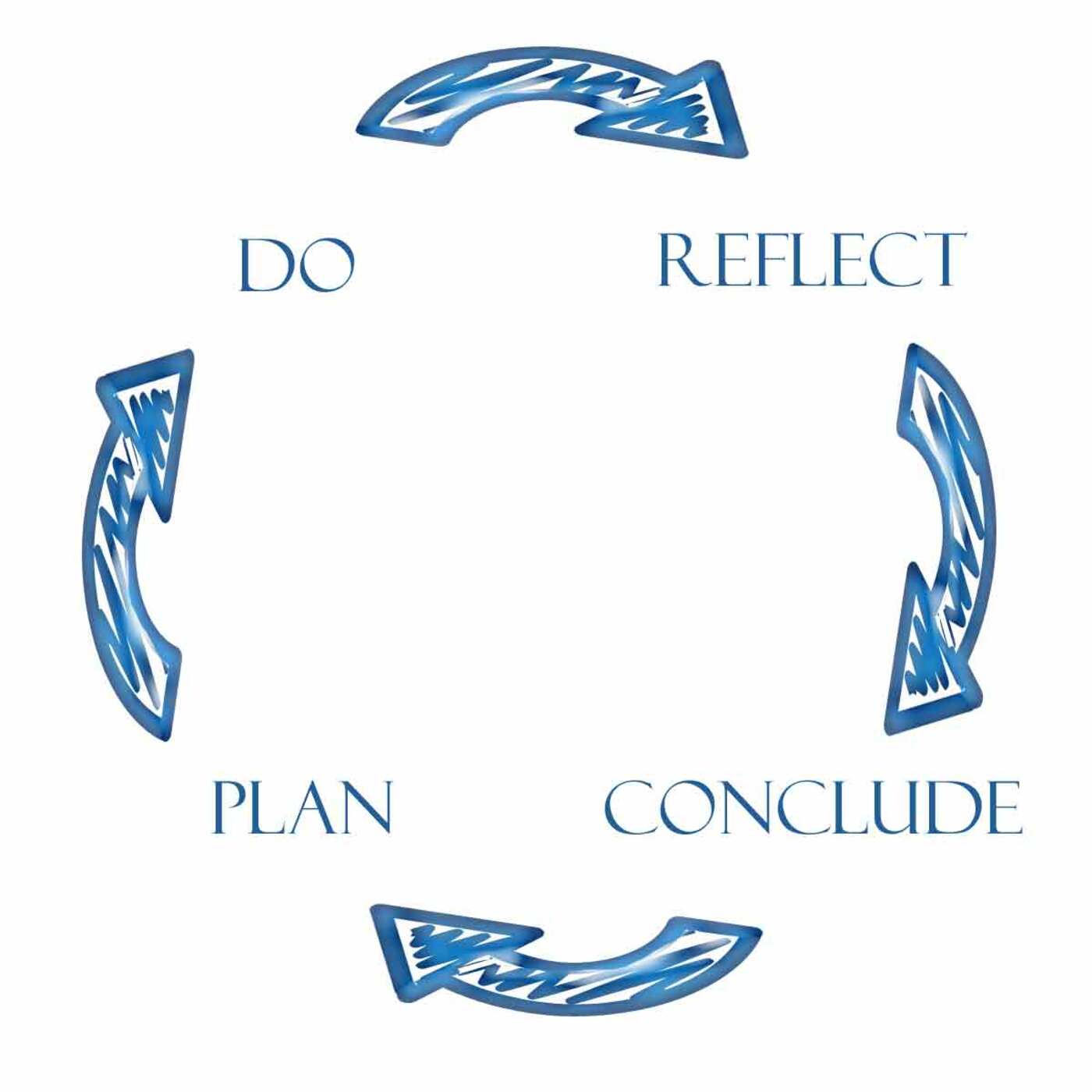
EAP FoundationThe Learning Cycle (Study Skills podcast)Reflection is an important part of the learning cycle, and in order to understand reflection and its importance it is necessary to understand more about the learning cycle. This podcast, part of the Study Skills series, looks at the Kolb learning cycle, and how to reflect using the Gibbs Reflective Cycle.
2019-09-0907 min
EAP FoundationPresentations Skills podcast #5: Visual aidsThis podcast, part of the Presentation Skills podcasts, gives some guidelines on using visual aids for presentations, with some do's and don'ts as well as useful language phrases.
2019-09-0804 min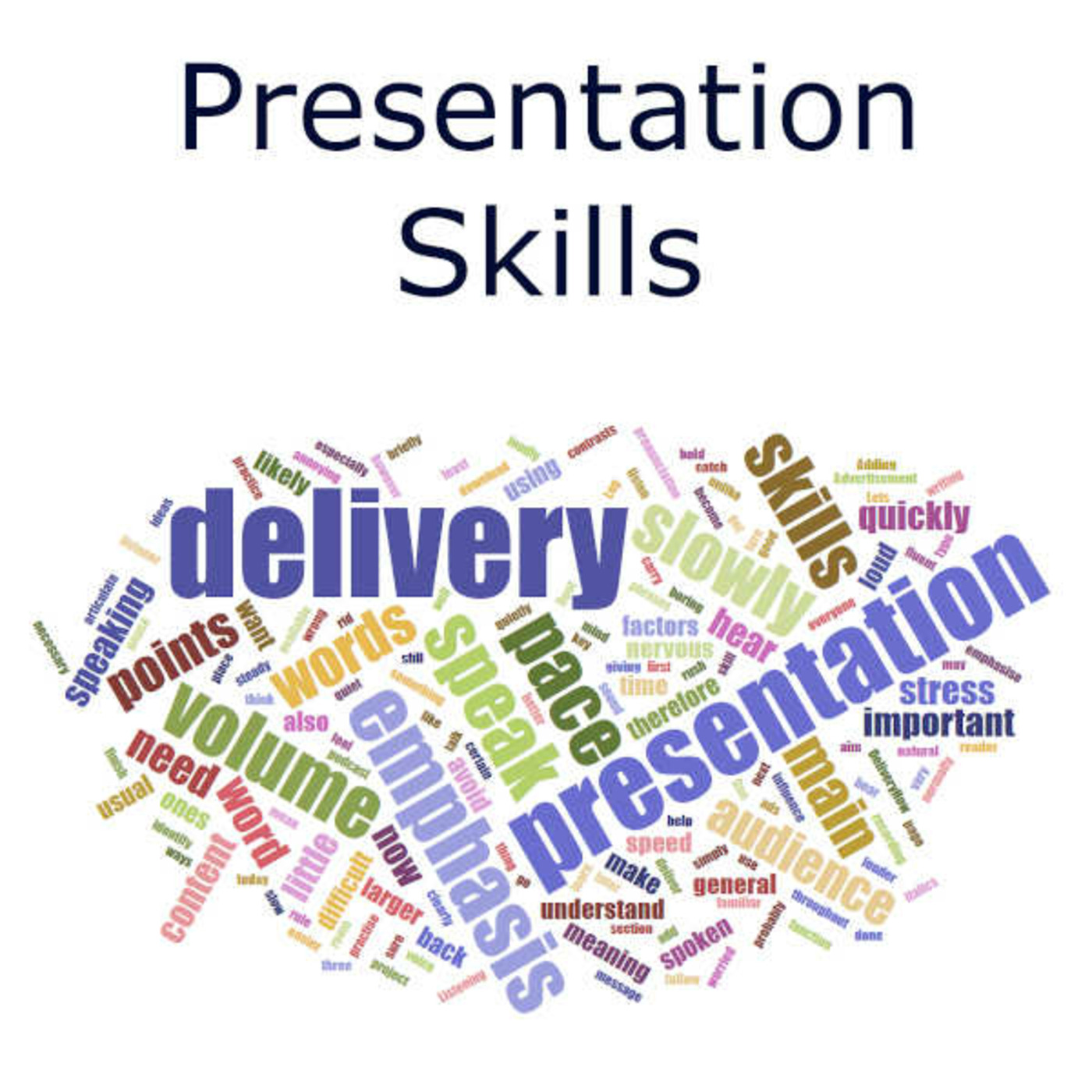
EAP FoundationPresentations Skills podcast #4: DeliveryThis podcast, part of the Presentation Skills podcasts, looks at presentation delivery, considering three key factors which influence the delivery of a presentation: pace; volume; and emphasis.
2019-09-0804 min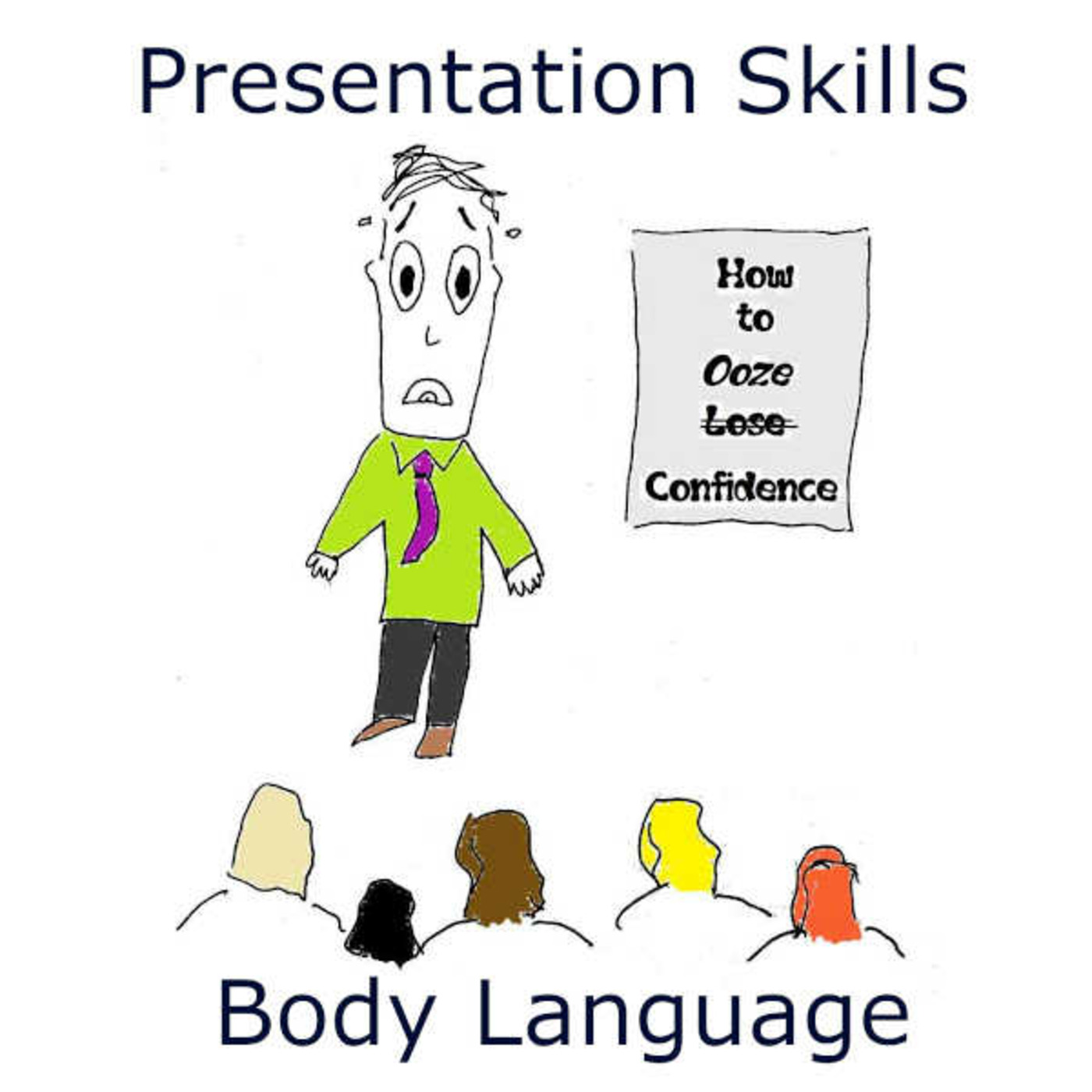
EAP FoundationPresentations Skills podcast #3: Body languageThe message you give with your body is as important as the one you give using words. This podcast, part of the Presentation Skills podcasts, examines the most important elements of body language for presentations, namely posture, position, movement and eye contact.
2019-09-0805 min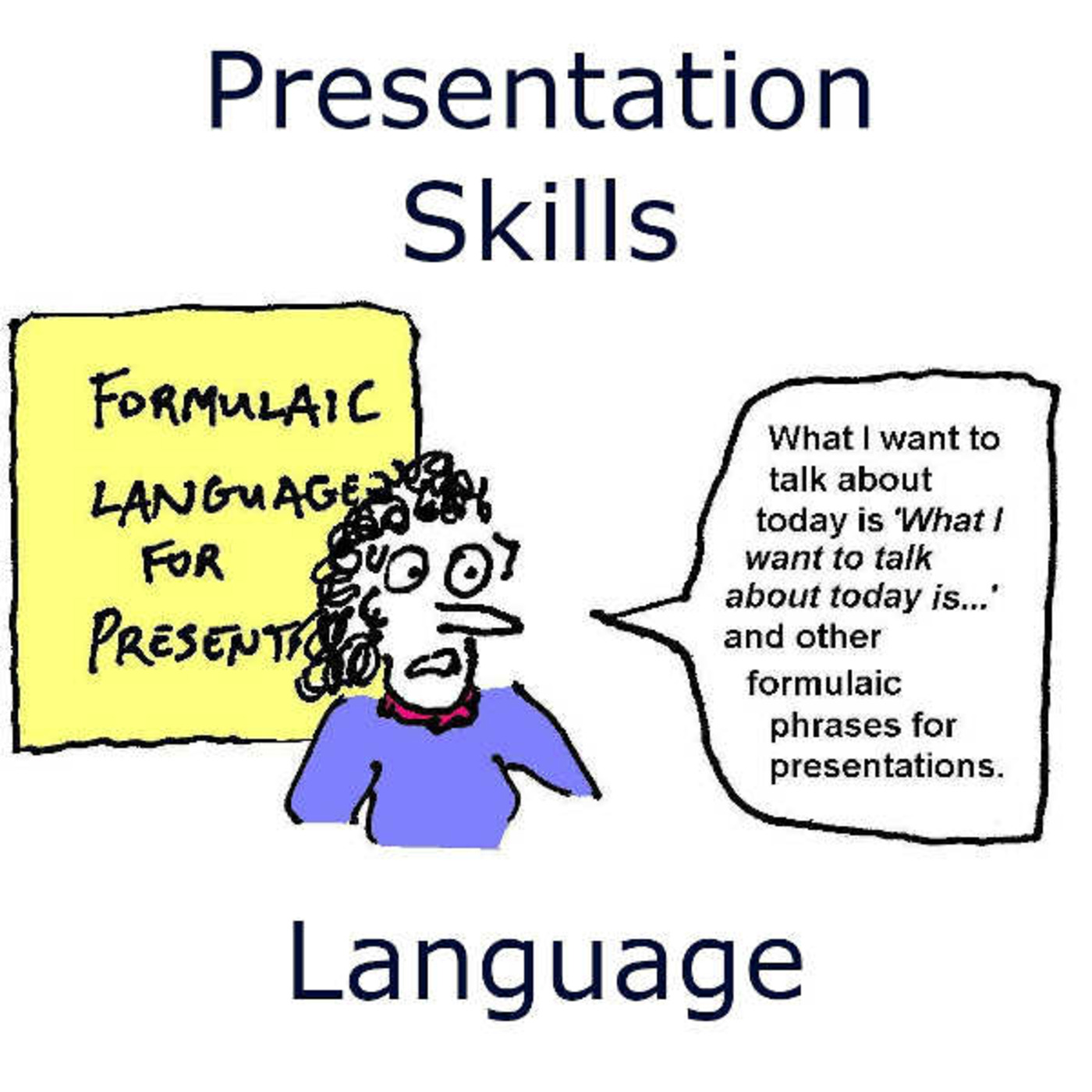
EAP FoundationPresentations Skills podcast #2: LanguageThis podcast, part of the Presentation Skills podcasts, gives examples of language phrases to use in different sections, for transitioning, and for presenting visual aids.
2019-09-0807 min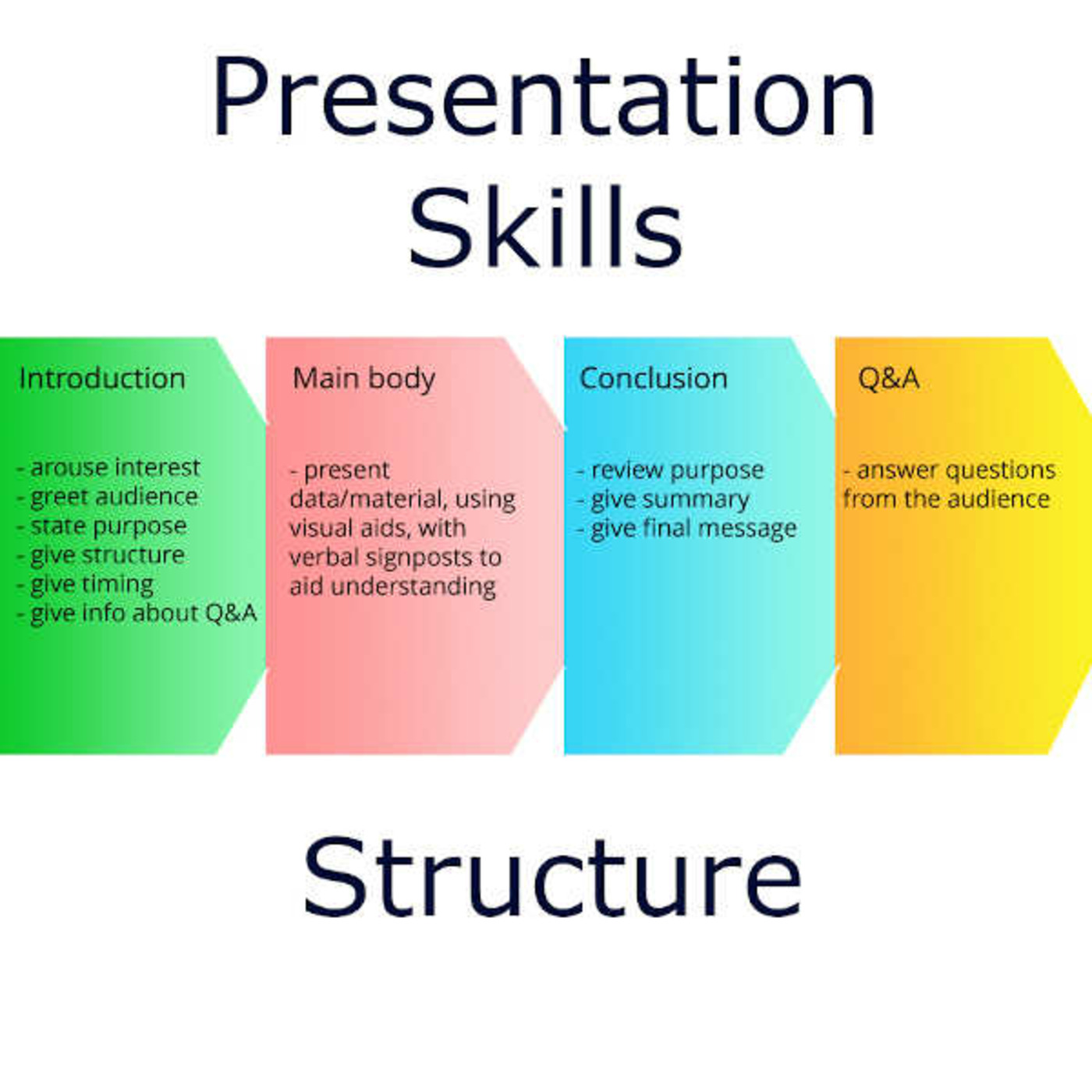
EAP FoundationPresentations Skills podcast #1: StructureThis podcast, part of the Presentation Skills podcasts, outlines the structure of a typical presentation, namely Introduction, Main body, Conclusion, Q&A, with tips on the function of each section and what to include in each.
2019-09-0804 min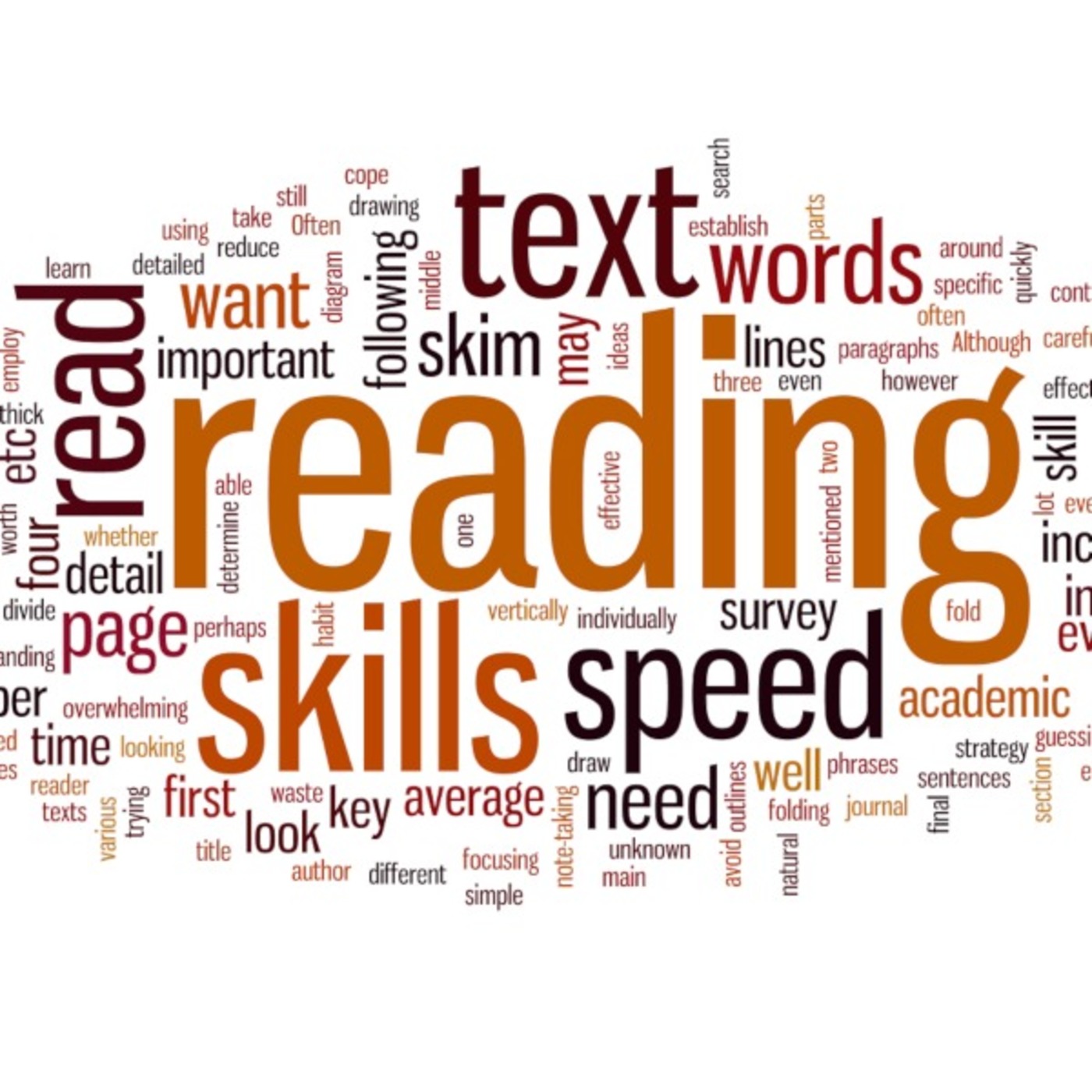
EAP FoundationReading skillsThis podcast, part of the reading skills series, gives an overview of skills which are needed for reading academic texts, including skimming, scanning, surveying, establishing a purpose and guessing meaning of unknown words.
2018-11-2802 min
EAP FoundationEstablishing a purpose for readingAcademic reading differs from reading for pleasure in that you will often not read every word, and you are reading for a specific purpose rather than enjoyment. This podcast, part of the reading skills series, explains different types of purpose and how the purpose affects how you read, as well as suggesting a general approach to reading academic texts.
2018-11-2803 min
EAP FoundationSurveying a textSurveying is another way to read a text quickly. The aim is to take a broad look at a text to decide whether it is worth reading more closely. This podcast, part of the reading skills series, explains in more detail what surveying is and which parts of the text are needed.
2018-11-2802 min
EAP FoundationScanningSkimming is another way to read a text quickly. This podcast, part of the reading skills series, looks at what scanning is, how to scan a text, and the difference between scanning and searching.
2018-11-2503 min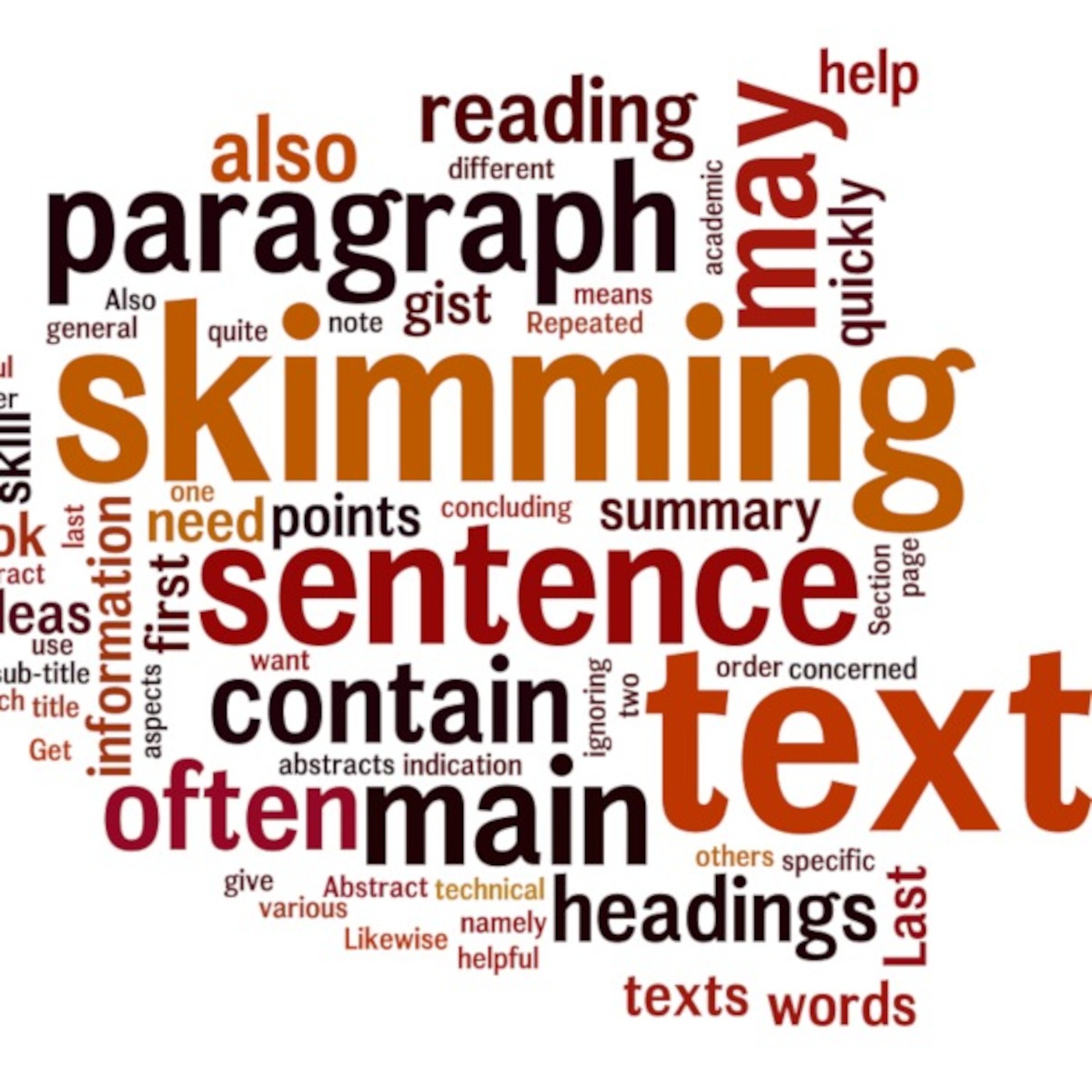
EAP FoundationSkimmingSkimming is one way to read a text quickly. This podcast, part of the reading skills series, looks at what skimming is and which parts of the text are needed for skimming.
2018-11-2502 min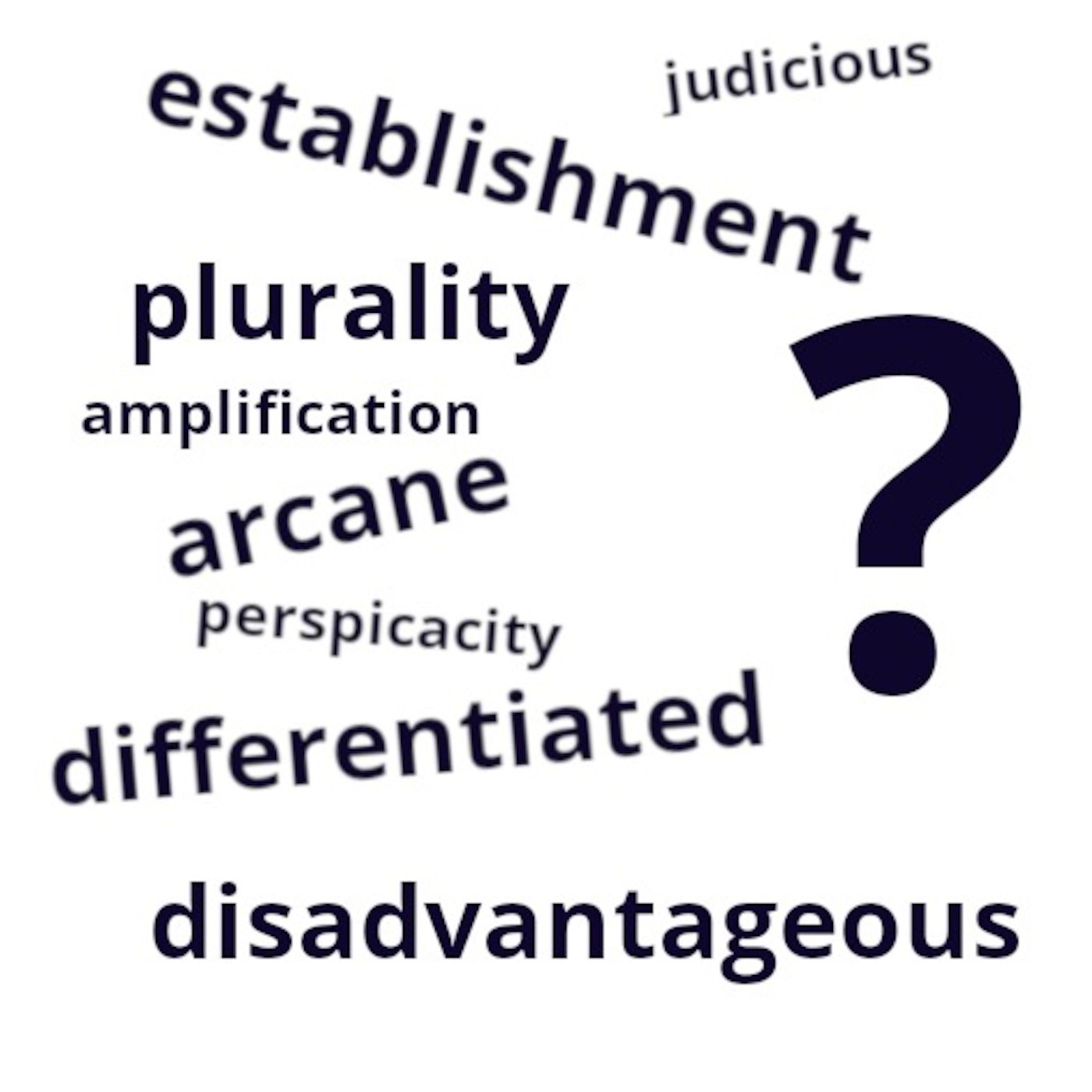
EAP FoundationGuessing unknown wordsWhenever you read extended texts in English, you will come across words which you do not know. This podcast looks at how to guess the meaning of unknown words by considering the context and using prefixes, suffixes and words roots.
2018-11-2406 min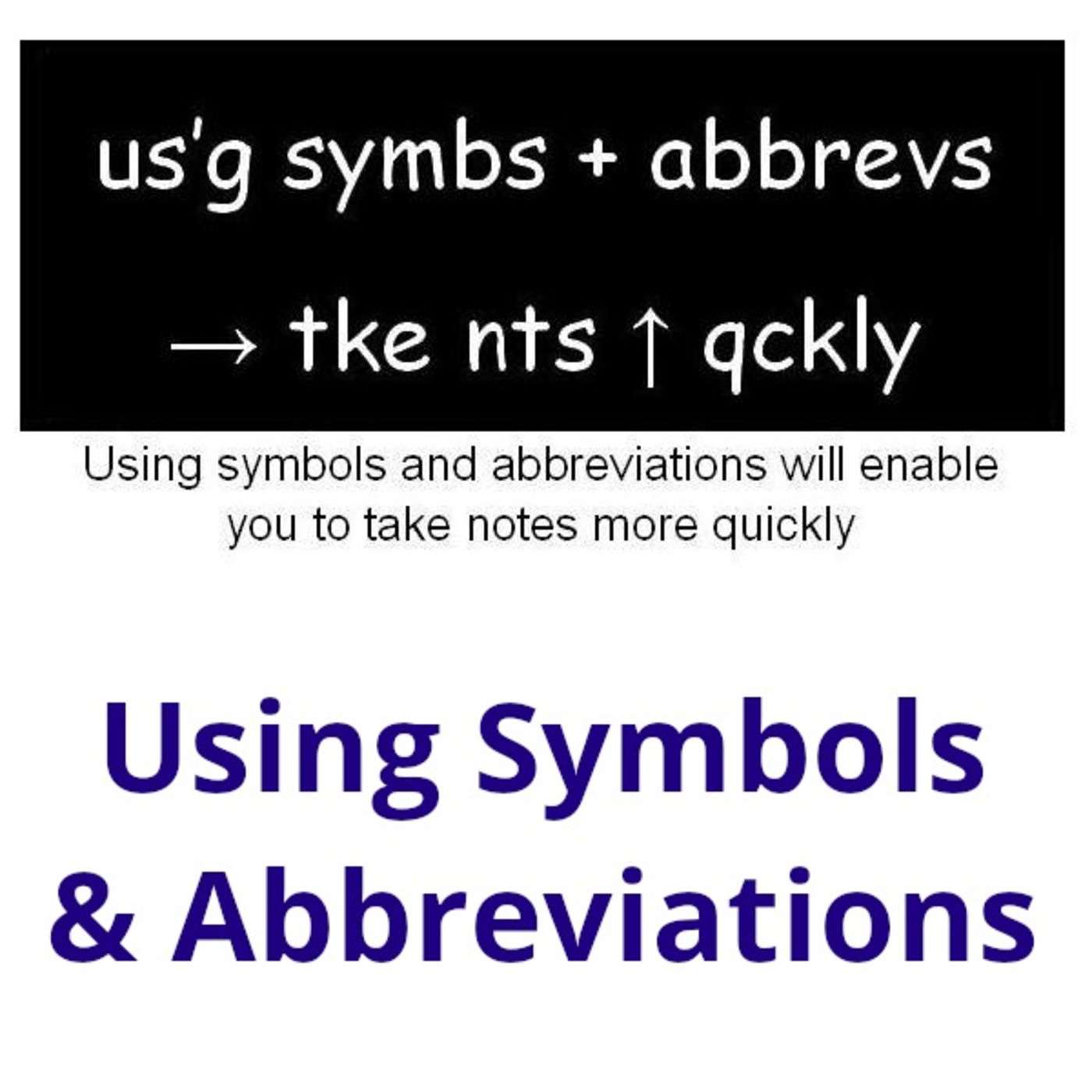
EAP FoundationSymbols and AbbreviationsWhen taking notes during lectures you need to find a way to write down the main ideas as quickly as you can. This is where symbols and abbreviations can help. This podcast looks at ways to abbreviate (shorten) any word, some common abbreviations and symbols and ideas to make your own personal abbreviations and symbols
2018-11-1807 min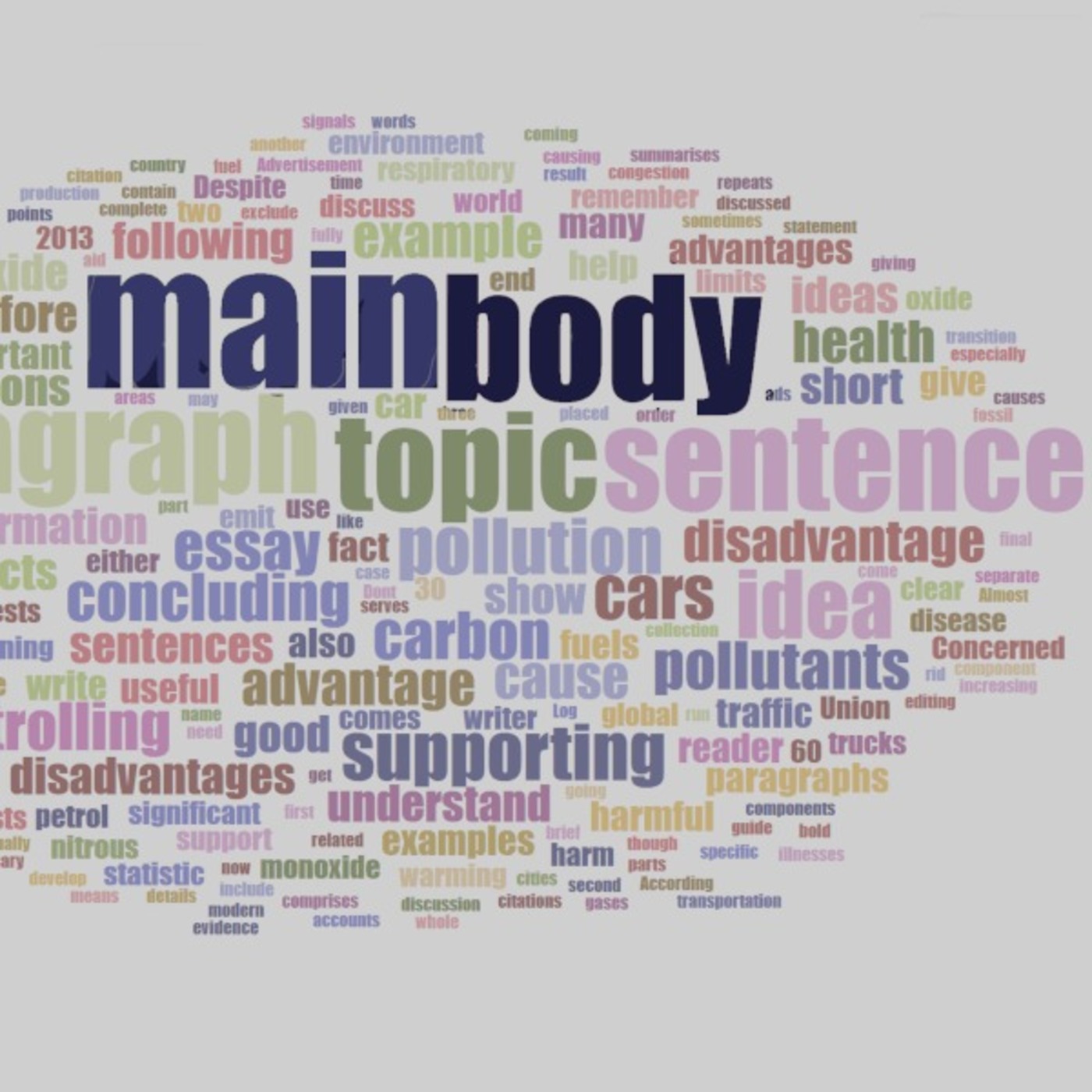
EAP FoundationEssay Structure: Main BodyThis podcast looks at how to write the main body of an essay, looking at topic sentences, supporting sentences and concluding sentences. The podcast is part of the essay structure series of podcasts.
2018-11-1706 min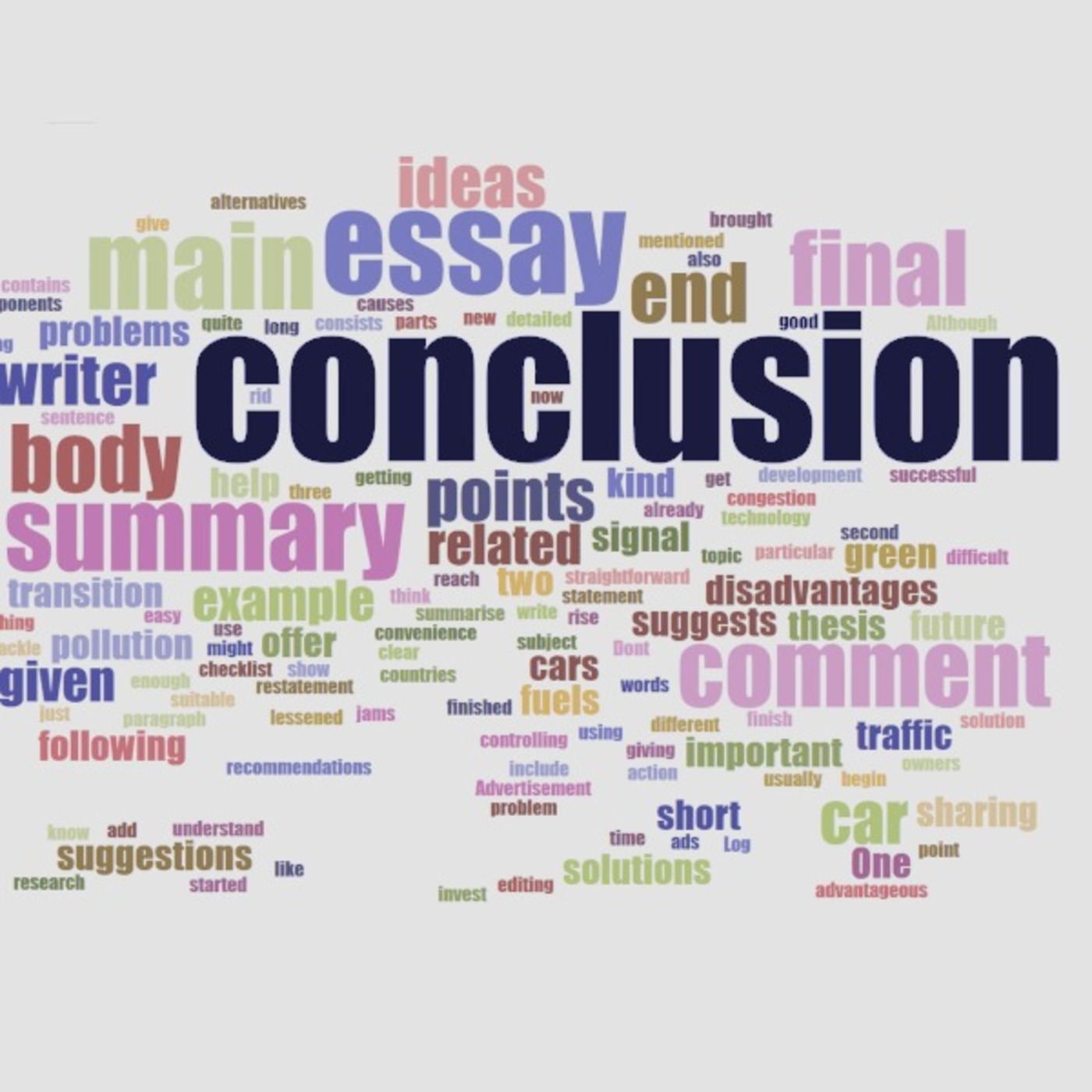
EAP FoundationEssay Structure: ConclusionThis podcast looks at how to structure the conclusion to an academic essay, including summary and final comment. The podcast is part of the essay structure series of podcasts.
2018-11-0302 min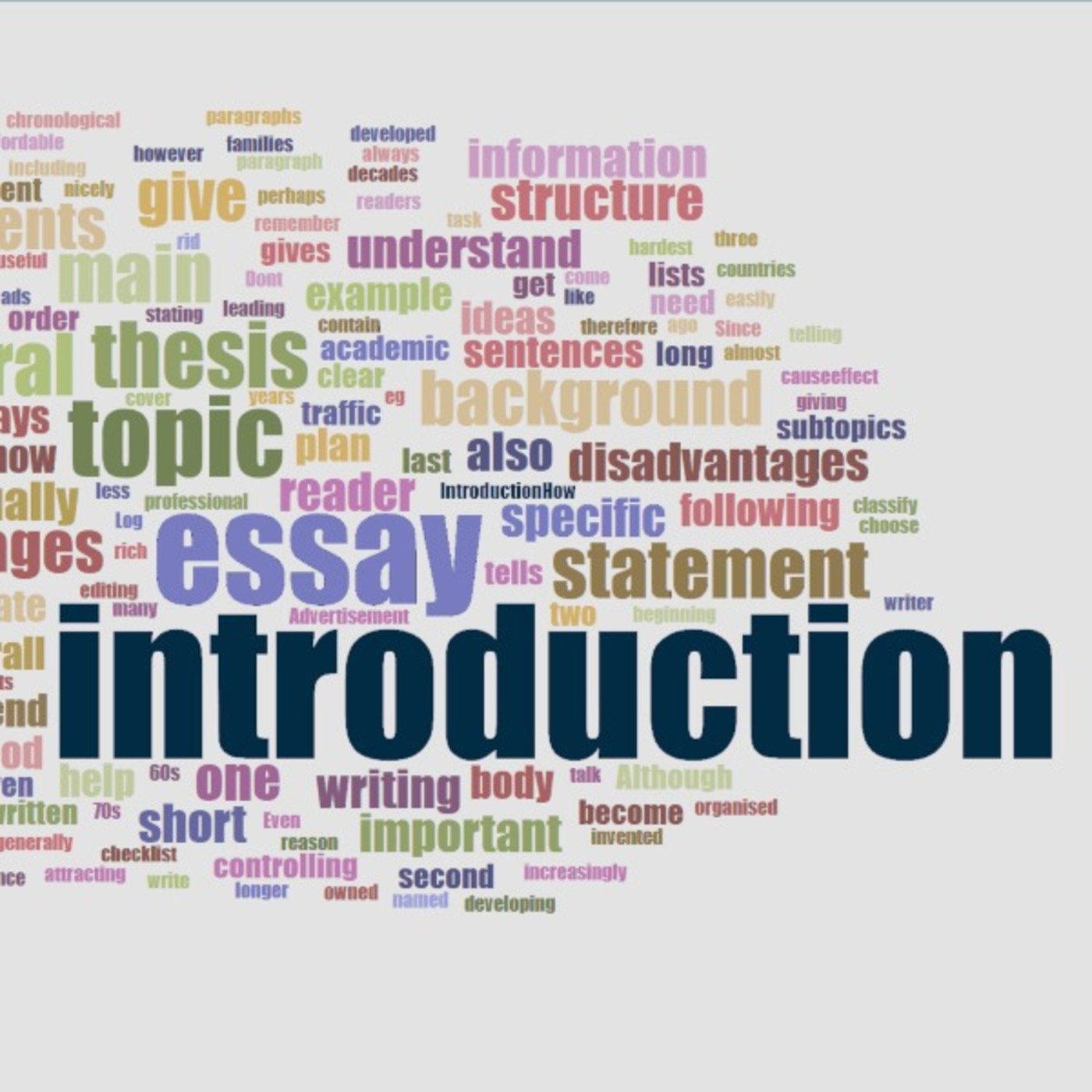
EAP FoundationEssay Structure: IntroductionThis podcast looks at how to structure the introduction to an academic essay, including general statements and thesis statement. The podcast is part of the essay structure series of podcasts.
2018-11-0305 min
EAP FoundationPersuasion EssaysPersuasion essays are another common type of academic writing. The podcast gives information on what a persuasion essay is and types of support for this type of essay, including predicting the consequence and counter-arguments. The podcast is part of the Essay Types for Academic Writing series.
2018-10-2704 min
EAP FoundationDiscussion EssaysDiscussion essays are a common form of academic writing. The podcast gives information on what a discussion essay is, how to structure this type of essay, and some vocabulary for discussion essays. It is part of the Essay Types for Academic Writing series.
2018-10-2704 min
EAP FoundationProblem-Solution EssaysProblem-solution essays are a common essay type, especially for short essays such as subject exams or IELTS. The podcast gives information on what they are and how to structure this type of essay. It is part of the Essay Types for Academic Writing series.
2018-10-2502 min
EAP FoundationCause & Effect EssaysThe cause and effect essay is a common essay type. This podcast gives information on what a cause and effect essay is, how to structure this type of essay, and how to use cause and effect structure words (transition signals) for this type of essay. It is part of the Essay Types for Academic Writing series.
2018-10-2505 min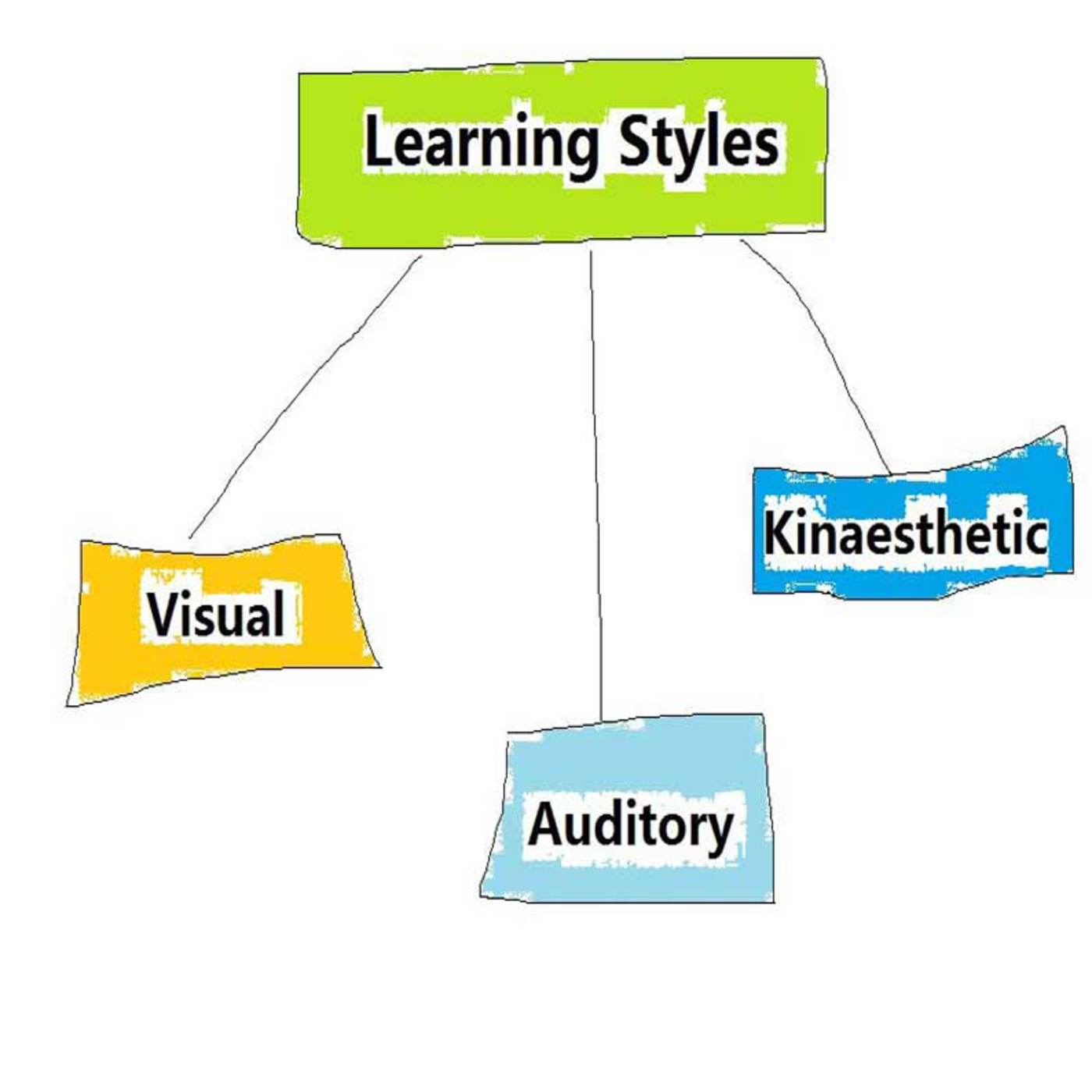
EAP FoundationLearning StylesDifferent learners have different preferences about how they understand, organise, and remember new information. This podcast, part of the Study Skills series, introduces some of the main learning styles (including Kolb, the Honey & Mumford, the VAK model and the Dunn & Dunn model) and gives ideas about how learning styles could improve study.
2018-10-2210 min
EAP FoundationTime ManagementStudy, just like life, places many demands on your time. This podcast, part of the Study Skills series, looks at how to manage your time by identifying targets, prioritising, breaking down tasks and creating a calendar or timetable.
2018-10-2206 min
EAP FoundationCompare & Contrast EssaysCompare and contrast is a common form of academic writing. This podcast gives information on what a compare and contrast essay is, how to structure this type of essay, how to use compare and contrast structure words, and how to make sure you use appropriate criteria for comparison/contrast. It is part of the Essay Types for Academic Writing series.
2018-10-2106 min
EAP FoundationDealing with stressStress is a major problem in modern life. The pressure of studying at university, a long way from home, means that university students are particularly prone to suffering from stress. This podcast, part of the Study Skills series, explains what stress is, lists some common signs of stress and gives 10 ways to deal with stress. It concludes with ways of dealing specifically with exam stress.
2018-10-0712 min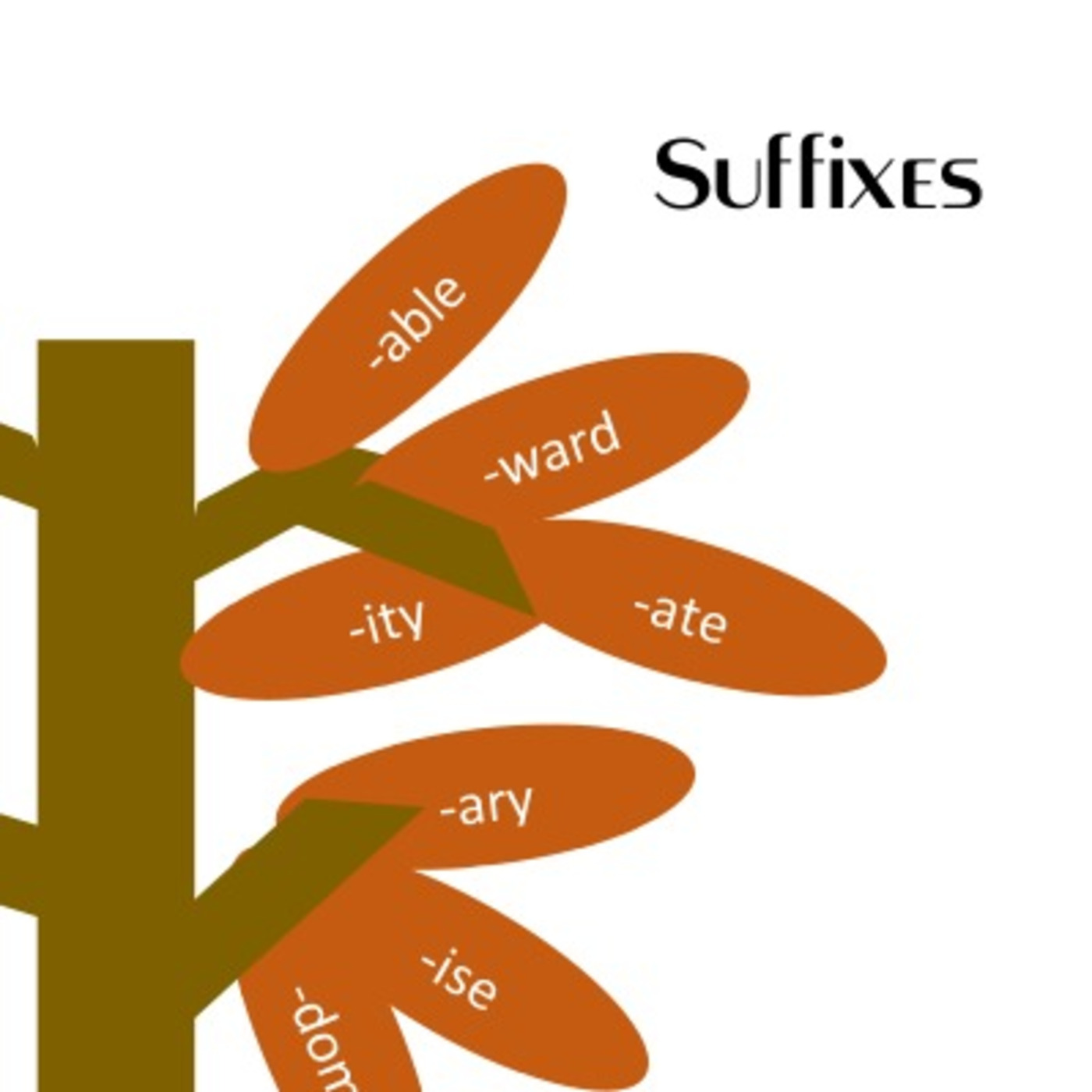
EAP FoundationSuffixesSuffixes, along with prefixes and word roots, are a useful way to build vocabulary. This podcast explains what suffixes are and gives examples of some common suffixes. Check out the website for more examples plus some exercises.
2018-10-0104 min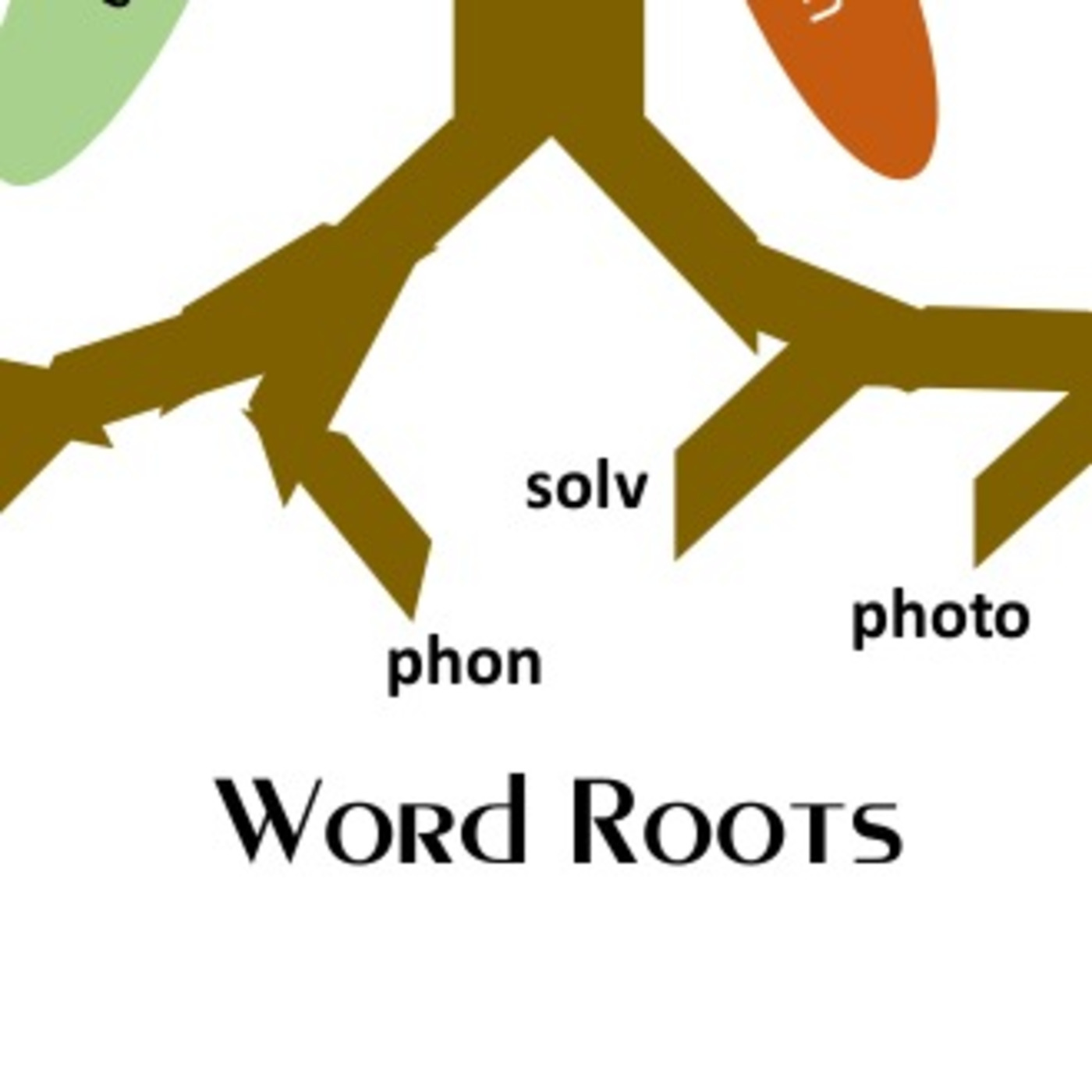
EAP FoundationWord rootsWord roots, along with prefixes and suffixes, are a useful way to build vocabulary. This podcast explains what word roots are and gives examples of some common word roots. Check out the website for more examples plus some exercises.
2018-10-0105 min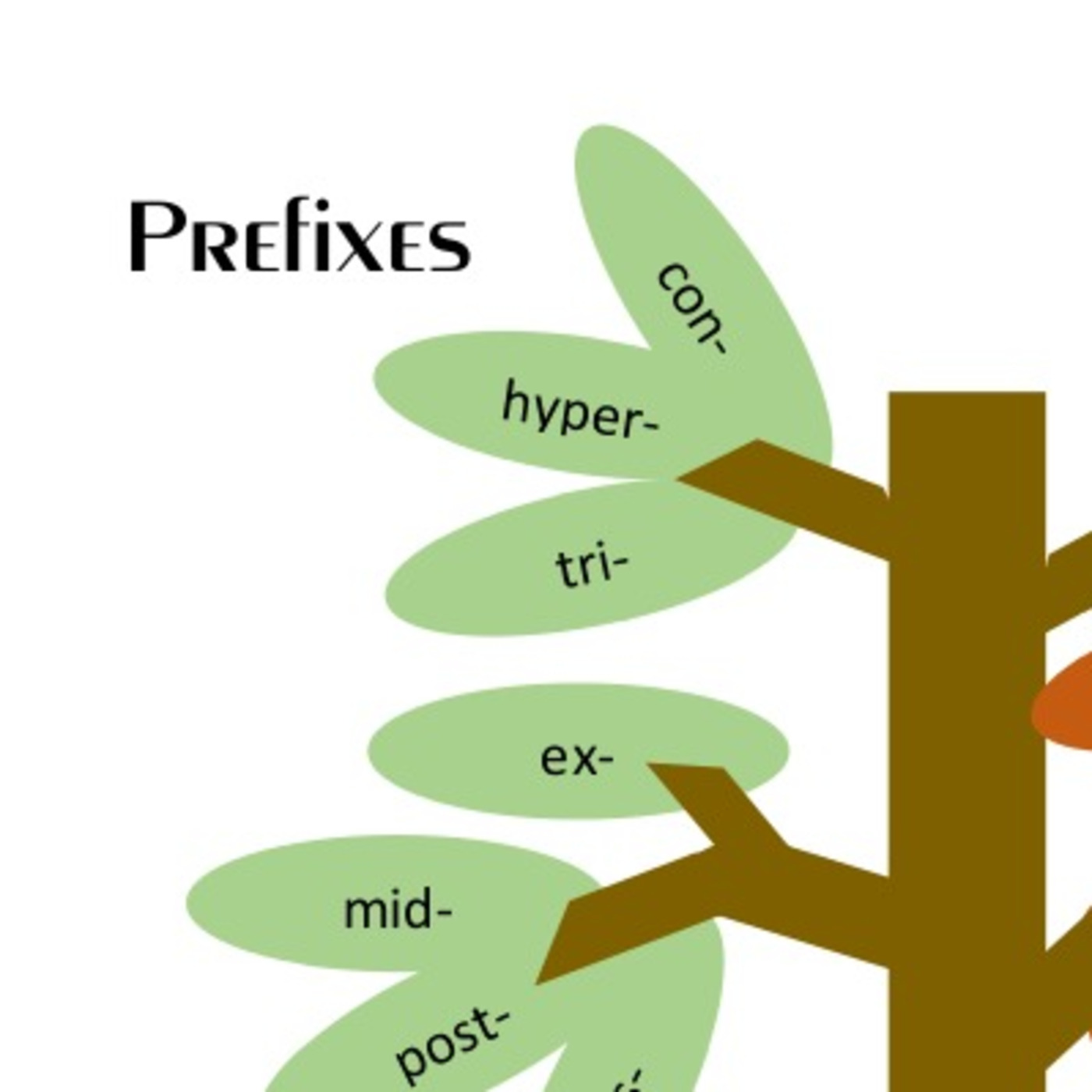
EAP FoundationPrefixesPrefixes, along with suffixes and word roots, are a useful way to build vocabulary. This podcast explains what prefixes are and gives examples of some common prefixes. Check out the website for more examples plus some exercises.
2018-10-0106 min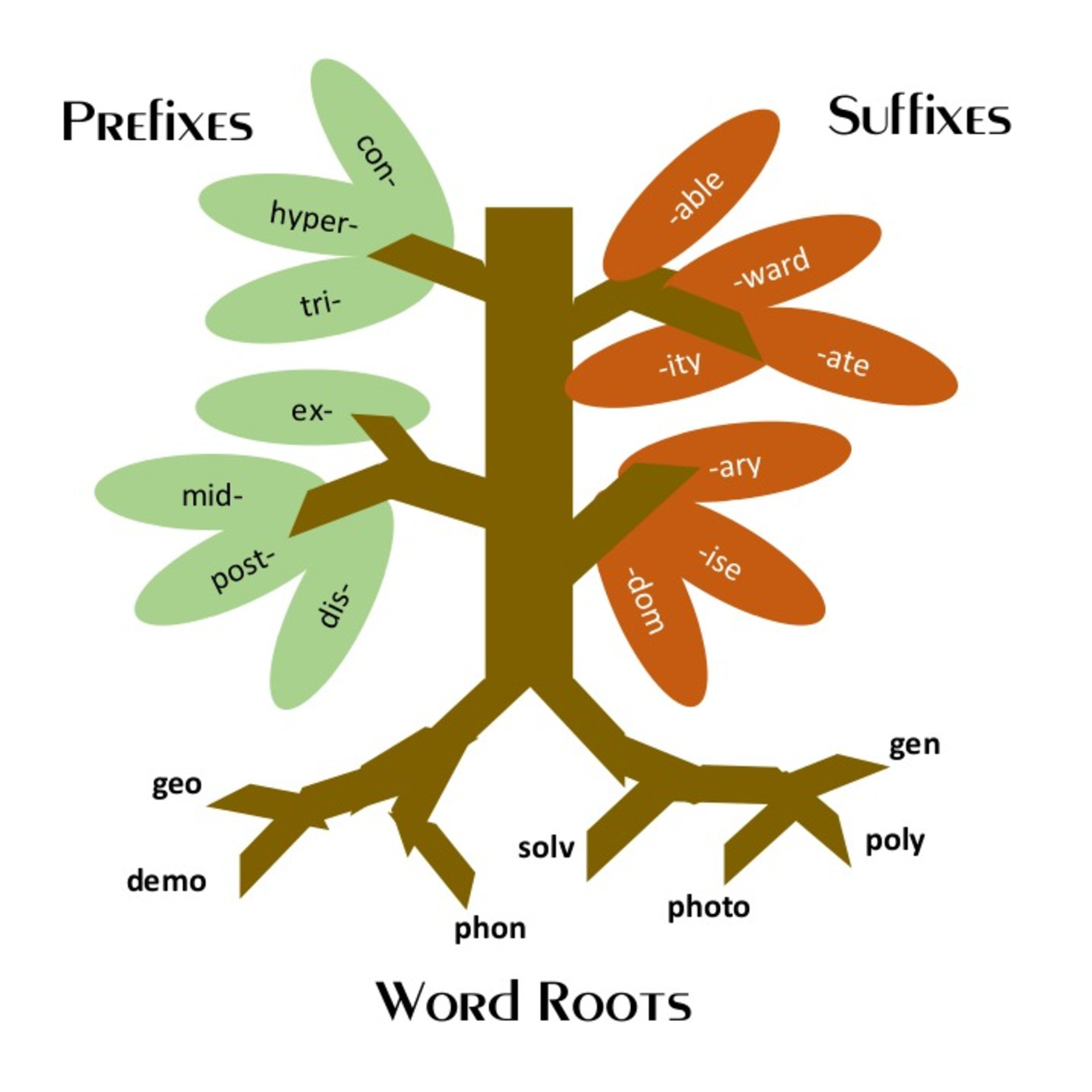
EAP FoundationBuilding vocabularyAlthough English vocabulary study can seem overwhelming at times, it can be made more systematic by considering prefixes, suffixes and word roots, which are a useful way to build vocabulary. This podcast explains what these terms mean and gives reasons to study them. Some common prefixes, suffixes and roots are given in later podcasts.
2018-10-0102 min